

The Best C.S. Lewis Biography (And Other Biographies /Companion Guides)!
Here is our favorite c.s. lewis biography … (plus, more biographies and companion guides to his work), compiled by marina konow.
Brief C.S. Lewis Biography: Though the celebrated C.S. Lewis, didn’t necessarily have a long life, he managed to accomplish a great deal with the time he was given. In his 65 years on earth, Lewis went from being raised Christian to later becoming atheist; only to be brought back to the Christian faith later. His famous friend, J.R.R. Tolkien , played a key role in his return to the faith.
Lewis created a world near and dear to many hearts through his well- known Narnian stories, which continue to influence our culture, over 60 years after the last book was published, For instance, three of the seven books have recently been turned into major motion picture productions. Since 1950, (the year The Lion, The Witch, and the Wardrobe was published) The Chronicles of Narnia series has sold over 100 million copies and has been published in 47 different languages.
Lewis continues to inspire all Christians through his essays and novels. Besides the Narnia series, his novels Mere Christianity , The Screwtape Letters, and The Great Divorce are but a few of his insightful works.
With all the wonderful stories and perspectives Lewis gave us, many authors have tackled the challenge of writing about him and his work. Through these books, one is able to gain more perspective of Lewis’s character and backstory; as well as an understanding of his faith journey.
Listed below are some of the best biographies and guides that help us better understand C.S. Lewis. We’ve included excerpts from the books where available via Google Books.
*** The Best C.S. Lewis Biography …
1) jack: a life of c. s. lewis by george sayer.
Sayer draws from a variety of sources, including his close friendship with Lewis and the million-word diary of Lewis’s brother, to paint a portrait of the man whose friends knew as Jack. Offering glimpses into Lewis’s extraordinary relationships and experiences, Jack details the great scholar’s life at the Kilns; days at Magdalen College; meetings with the Inklings; marriage to Joy Davidman Gresham; and the creative process that produced such world-famous works as the classic Chronicles of Narnia, Mere Christianity, and The Screwtape Letters. This book is an intimate account of the man who helped-and through his works, continues to help-generations hear and understand the heart of Christianity.
C.S. Lewis Biographical FAQ:
When did c.s. lewis live.
Born: November 29, 1898, Belfast, Noerthern Ireland Died: November 22, 1963, Oxford, United Kingdom
How did C.S. Lewis die?
Lewis died on 22 November 1963 from kidney failure, one week before his 65th birthday. (via Wikipedia)
Did C.S. Lewis write an autobiography?
Yes, he wrote several autobiographical books including SURPRISED BY JOY: The Shape of my Early Life and A GRIEF OBSERVED, about his grieving the death of his wife, Joy Davidman.
What is C.S. Lewis best known for?
C.S. Lewis is best known for his novels for children, THE CHRONICLES OF NARNIA. However, he wrote many other bestselling books on themes of faith.
NEXT PAGE >>>>>> PAGE 1 OF 6

Image Credit: From the cover to the excellent book A Life Observed: A Spiritual Biography of C. S. Lewis by Devin Brown. Buy it now!)
UPDATED AUGUST 2020 to add FAQ

Related Posts:

Comments are closed.
Book Bargains

5 Essential Ebook Deals for Church Leaders – 19 April 2024

Ebook Deal of the Day! Dorothy Sayers – Letters to a Diminished Church – $3.99

Ebook Deal of the Day! Brian Zahnd – Sinners in the Hands of a Loving God – $1.99
Most viewed.
- Rumi Poems – Eight of Our Favorites by the Sufi Mystic 313677 views
- Ten Best Abraham Lincoln Biographies 122436 views
- Walt Whitman Poems – 8 of our Favorites from Leaves of Grass 94424 views
- Alexander Pushkin – Eight Favorite Poems by the Russian Poet 77883 views
- Hafez Poems – Eight of Our Favorites from the Divan of Hafez ( In English ) 71065 views
- Lent – Seven of our Favorite Poems 60966 views
- Against Christian Nationalism: Essential Books [A Reading Guide] 46162 views
- Ten Important Women Theologians To Start Reading 43409 views
- Dallas Willard Books – Seven Essential Titles to Read! 39198 views
- Best Bob Dylan Books – Biographies, Lyrics, and More! 38933 views
- Ten Best Alexander Hamilton Biographies 38687 views
- Hilarious One-Star Bible Reviews 38526 views
- John O’Donohue Poems – Four of our Favorites 36110 views
- November – Eight Classic Poems! 31181 views
- Classic Gratitude Poems – Joy Harjo, Mary Oliver, MORE 30411 views
- Thomas Merton Books – An Intro Reading Guide 28295 views
- Antiracism Books for Christians – A Reading Guide 27332 views
- N.T. Wright Books – An Introductory Reading Guide to The Theologian’s Work 26613 views
- Wendell Berry Poems – Seven of Our Favorites! 25895 views
- St. Augustine – Three Poems 25092 views
- Joy Harjo Poems – Five of the Best Poems by the Former US Poet Laureate 24489 views
- Eastern Orthodoxy – Essential Books [A Reading List] 24237 views
- Twelve Important Theology Books of 2021!!! 23013 views
- Mary Oliver Essays – 10 Prose Selections to Read for Free Online! 21741 views
- Fifteen Important Theology Books of 2022!!! 21652 views
- Fall 2021 – Most Anticipated Books for Christian Readers! 20637 views
- Jami – Eight Poems by the Sufi Poet 20341 views
- Holy Sonnets – John Donne – Complete Text 20341 views
- Fyodor Dostoevsky – Download all his Novels as Free Ebooks !!! 18797 views
- Best Leonard Cohen Books – Biographies and Books by the Songwriter 18557 views
- Emily Dickinson Poems – Seven of our Favorites! 18530 views
- Twelve Important Theology Books of 2020!!! 17119 views
- St. Augustine – Best Books on His Life and Work 16856 views
- Gerard Manley Hopkins – 5 Favorite Poems 16769 views
- Twelve Important Fiction Books of 2022! 16638 views
- Marilynne Robinson – 10 Freely Available Essays! 16197 views
- Spring 2021 Most Anticipated Books for Christian Readers! 16112 views
- Robert Frost – 5 Lesser Known Poems 16032 views
- Henri Nouwen Books – An Introductory Reading Guide 15853 views
- The Best C.S. Lewis Biography (And Other Biographies /Companion Guides)! 15742 views
- Spring 2022 – Most Anticipated Books for Christian Readers! 15356 views
- Frederick Buechner Books – An Introductory Reading Guide 15291 views
- Martin Luther King, Jr. – His Prophetic Faith in 15 Quotes 14783 views
- Spring 2023 – Most Anticipated Books for Christian Readers! 14702 views
- Fifteen Important Theology Books of 2023! 14484 views
- Anne Bradstreet Poems – Five of our Favorites by the Puritan Poet! 14412 views
- Sabbath Books – Best Reads for Christians on Rest and Sabbath! 14349 views
- Best Johnny Cash Books – Biographies and More! 13963 views
- Jacques Ellul Books – An Introductory Reading Guide 13554 views
- Willa Cather Short Stories – Five Superb Stories to Read for FREE! 13390 views
- Matsuo Basho – Five Haiku – Poetry 13237 views
- On Being with Krista Tippett – Top 10 Best Episodes! 13120 views
- Dorothy Sayers Poems – Five of Our Favorites! 13076 views
- John Wesley Sermons – The 7 Best Sermons from the Founder of Methodism! 12989 views
- Howard Thurman – Books – An Introductory Reading Guide 12759 views
Our Favorite Posts:
The englewood review of books.

FREE Ebook! Reading for the Common Good by ERB Editor Chris Smith

- BROWSE TOPICS X
- Devotionals
- Newsletters
5 Books by C.S. Lewis that Everyone Should Read
- Ryan Duncan
- Updated Aug 22, 2022
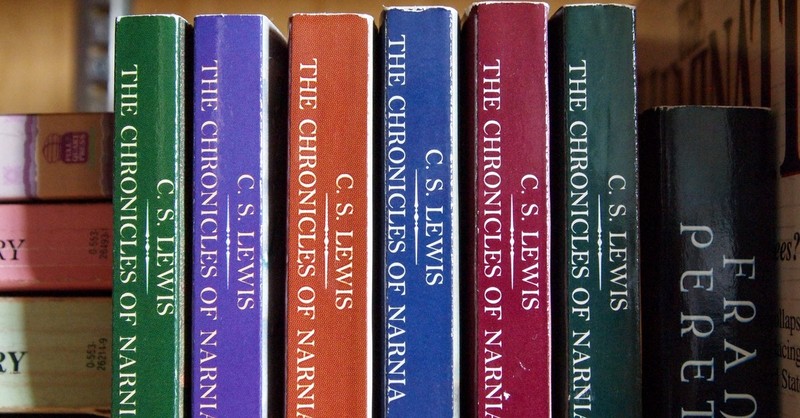
SPECIAL OFFER : Enroll in this free online course on C.S. Lewis today!
It has been over fifty years since the death of C.S. Lewis. On November 22, 1963, the Christian author and scholar passed away quietly in his home, his absence largely overlooked by the rest of the world. Yet Lewis’ writings went on to inspire generations of Christians and challenged the world with new notions about faith and God. Today, I would like to commemorate his work with a list of five books by C.S. Lewis that everyone should read. But first, let's look into his life and what inspired his great works of literature.
The Life of C.S. Lewis
Born in Belfast Ireland on Nov. 29, 1898, Clive Staples Lewis (nicknamed Jack) grew up with a deep love for reading books. Some of his favorites were Beatrix Potter stories; he had a fascination for writing and illustrating his own animal stories.
Losing his mother at an early age had a deep impact on Lewis’ spiritual life. Without her wisdom and godly influence, under agnostic and atheistic education later as a teen, he eventually walked away from his faith becoming an atheist.
Through the years, he faced hardship and pain after being injured in World War One and continued his search for meaning in life. Lewis finally came back to God at age 32, greatly influenced by the inspiring writings of George McDonald and other colleagues and friends, such as J. R. R. Tolkien, and G. K Chesterton.
Excerpt from 25 Inspiring C. S. Lewis Quotes by Debbie McDaniel
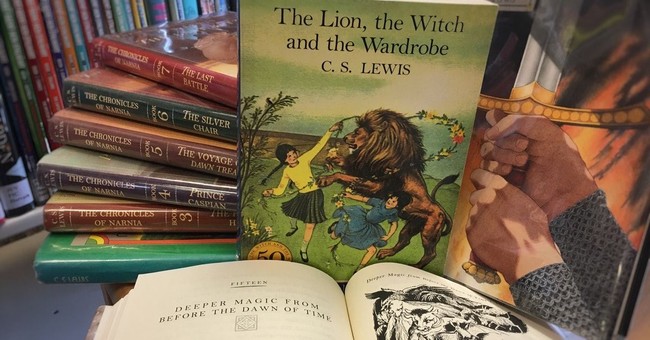
Books by C.S. Lewis Everyone Should Read
Mere christianity.
“If I find in myself desires which nothing in this world can satisfy, the only logical explanation is that I was made for another world.”
Mere Christianity is one of Lewis’ most insightful books as well as one of his most difficult. A frank discussion on Christian beliefs, Mere Christianity urges the reader to ask tough questions while examining the Bible from new perspectives. At moments, some may find the material hard to digest, but Lewis’ determined narrations help to pull the reader slowly forward. Even 70 years after it was written, this book continues to inspire Christians in the midst of their walk with God.
The Great Divorce
“Every natural love will rise again and live forever in this country: but none will rise again until it has been buried.”
Drawing inspiration from the works of St. Augustine, Lewis Carroll, and George MacDonald, The Great Divorce takes its readers on a journey to the slopes of Heaven and Hell. Lewis imagines a grim and joyless city known as “The Grey Town”, filled with inhabitants seeking a better place. When the narrator of the story joins a bus tour on an excursion elsewhere, he makes some startling discoveries about himself and what awaits him at the end of the road. Filled with vivid imagery and some poignant discussions on joy and redemption , The Great Divorce asks us to consider the ultimate destination of every soul.
The Screwtape Letters
“It is funny how mortals always picture us as putting things into their minds: in reality our best work is done by keeping things out.”
Wickedly charming and brilliantly clever, The Screwtape Letters is Lewis at his finest. The book is comprised of thirty-one written letters from the demon Screwtape to his nephew, Wormwood, a younger and less experienced tempter. Together, the two schemes for ways to lead a human man toward “ Our Father Below” (Satan) while dreading the strength of “the Enemy” (God). The unorthodox perspective, combined with Lewis tactful writing, makes The Screwtape Letters a riveting story that should not go overlooked.
A Grief Observed
“No one ever told me that grief felt so like fear.”
The Lion, The Witch, and the Wardrobe
“And so for a time it looked as if all the adventures were coming to an end; but that was not to be.”
The Lion, The Witch, and The Wardrobe will forever remain the most beloved of Lewis’ written works. It’s here that readers were first introduced to the magical realm of Narnia and the immortal character of Aslan, the lion. It’s here that the wonder and the beauty of Jesus death was rendered in stunning metaphor. And it’s hear where Lewis began the seven-book saga which would capture the imagination of children everywhere. The Lion, The Witch, and The Wardrobe has been read and re-read, and will no doubt open again in the years to come.
Cover Photo Credit: Pexels/Pixabay
Recently On C.S. Lewis / Narnia
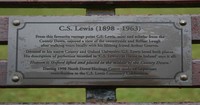
Editor's Picks

Popular Today

- Privacy Policy
- Terms of Use
- Crosswalk App
- California - Do Not Sell My Personal Information
- California - CCPA Notice
- Latest Latest
- The West The West
- Sports Sports
- Opinion Opinion
- Magazine Magazine
C.S. Lewis died 60 years ago. Here are 10 of his best works
In honor of the 60th anniversary of the author’s death, here’s a list of some of his most famous works.

By Eva Terry
C.S. Lewis died on Nov. 22, 1963, at 64 years old.
During his lifetime, he published 37 books and many more essays, taught English literature at Oxford University and served as chair of Medieval and Renaissance Literature at Cambridge University, per the C.S. Lewis website . He is widely regarded as one of the most influential authors of the 20th century.
In honor of his life, here’s a list of 10 of his best works.
1. ‘Learning in War-Time’ (sermon)
Published in: 1939.
“Learning in War-Time” is a sermon Lewis gave at St. Mary the Virgin Church, Oxford, near the beginning of World War II. It discusses the purpose of education amid the horrors of war.
He poses the questions:
- “What is the use of beginning a task to which we have so little chance of finishing?
- “If we ourselves should happen not to be interrupted by death or military service, why should we — indeed how can we — continue to take an interest in these placid occupations when the lives of our friends and the liberties of Europe are in the balance? Is it not like fiddling while Rome burns?”
The sermon argues that if education is delayed because of conflict, it will never happen. Lewis also refutes the claim that culture makes someone more spiritual. He believes that closeness to God comes from the attitude you adopt.
Notable quotations: “To be ignorant and simple now — not to be able to meet the enemies on their own ground — would be to throw down our weapons, and to betray our uneducated brethren who have, under God, no defense but us against the intellectual attacks of the heathen.”
“Good philosophy must exist, if for no other reason, because bad philosophy needs to be answered.”
2. ‘Mere Christianity’
Published in: 1952.
Lewis’ book “Mere Christianity” got its start on a BBC radio show during which Lewis gave 15-minute talks under the title of “Right and Wrong: A Clue to the Meaning of the Universe.”
Lewis did four series for BBC from 1941 to 1944 and, in total, spoke for nearly six hours on air, according to the Gospel Coalition . His remarks turned out to be extremely popular and one broadcast brought in 1.5 million listeners.
The radio segments were compiled into “Mere Christianity,” which has three sections titled, “Right and Wong as a Clue to the meaning of the Universe,” “What Christians Believe” and “Christian Morality.” In them, Lewis discusses the existence of God and why God matters to the human experience.
He explores faith and virtues from a Christian perspective and discusses what it really means to be “born again.”
Notable quotation: “You must ask for God’s help. Even when you have done so, it may seem to you for a long time that no help, or less help than you need, is being given. Never mind. After each failure, ask forgiveness, pick yourself up, and try again. Very often what God first helps us towards is not the virtue itself but just this power of always trying again.”
3. ‘The Great Divorce’
Published in: 1945.
Lewis wrote “The Great Divorce” in response to William Blake’s “The Marriage of Heaven and Hell,” which argues for the necessity of both good and evil in the world. “The Great Divorce” explores what the afterlife will be like for people who lived good lives and for those who didn’t.
The story begins at a bus stop in Hell. Nearly everyone but the narrator is angry, and they shove their way onto a bus headed to heaven. “Solid People” plead with the ghosts from Hell to stay in Heaven, and the narrator observes nearly everyone unwilling to let go of their pride and stay. Lewis proposes that going to Heaven or Hell is a choice ultimately made by the individual.
Notable quotation: “There are only two kinds of people in the end: those who say to God, ‘Thy will be done,’ and those to whom God says, in the end, ‘Thy will be done.’ All that are in Hell, choose it. Without that self-choice there could be no Hell. No soul that seriously and constantly desires joy will ever miss it. Those who seek find. Those who knock it is opened.”
4. ‘The Screwtape Letters’
Published in: 1942.
This book is a series of letters between a senior demon, Screwtape, and a novice, Wormwood, as they try to lead a human toward Hell. Lewis explores various aspects of morality and spirituality through the lens of a demon trying to get a human to sin.
Like “Mere Christianity,” this book is less of a story driven by plot and more of an exploration of what it means to be human.
Notable quotation: “Indeed the safest road to Hell is the gradual one—the gentle slope, soft underfoot, without sudden turnings, without milestones, without signposts, ... Your affectionate uncle, Screwtape.”
5. ‘The Problem With Pain’
Published in: 1940.
This book explores “why a good and all-powerful God allows pain in the world,” per Emerging Scholars Network . He challenges the argument that, if God were good, He would make sure all of his creations were happy and would solve all of the heartache in the world.
Lewis splits his arguments into chapters discussing various aspects of pain and concludes they are a result of people’s free will. Though humanity consistently misuses free will, Lewis asserts that it’s only through free will that love can genuinely exist.
Notable quotation: “We can ignore even pleasure. But pain insists upon being attended to. God whispers to us in our pleasures, speaks in our conscience, but shouts in our pains: it is his megaphone to rouse a deaf world.”
6. ‘Perelandra’
Published in: 1943.
“Perelandra” is the second book in Lewis’ sci-fi space trilogy and references the Bible’s creation story. In this book, the protagonist Elwin Ransom is largely based off of Lewis’ close friend, J.R.R. Tolkien, and works as a philologist at Cambridge University.
Ransom is sent to a world of floating islands and meets the planet’s version of Eve, a green-skinned woman called “the Lady.” Evil Professor Weston arrives on the planet after Ransom and introduces evil into the world for the first time.
Notable quotation: “The world is so much larger than I thought. I thought we went along paths — but it seems there are no paths. The going itself is the path.”
7. ‘Till We Have Faces’
Published in: 1956.
“Till We Have Faces” is Lewis’ rendition of the myth of Cupid and Psyche. Psyche’s older sister Orual narrates. Psyche is known for her beauty, while Orual is known for her ugliness.
The girls’ father decides to sacrifice Psyche to appease the god of the Mountain. Orual finds out that Psyche isn’t actually dead.
Carnegie Library describes the book like this: “In Lewis’ version, the story is narrated from the perspective of Orual, Psyche’s older sister, who is known as much for her ugliness as Psyche is for her beauty. What starts with Orual’s bold accusations against the gods and demand for answers turns into a self-revelatory journey for her as she wrestles with her understanding of love and truth and justice and the question of whether we can discern anything correctly until we remove our ‘veils.’”
Notable quotation: “Holy places are dark places. It is life and strength, not knowledge and words, that we get in them. Holy wisdom is not clear and thin like water, but thick and dark like blood.”
8. ‘Narnia’
Published in: 1950 to 1956.
There are seven books in the Narnia series, and each one tells a slightly different story involving the magical land of Narnia, where animals talk and magic exists.
The first book, “The Lion, The Witch and the Wardrobe,” introduces Peter, Susan, Edmund and Lucy Pevensie, who had to leave their home due to air raids during World War II. While the four children are staying with a professor in the English countryside, Lucy finds a magical wardrobe that acts as a portal to the fantastical realm of Narnia. At first, she ventures in alone and befriends Mr. Tumnus. She brings her siblings back with her, and they find out they are destined to end the evil White Witch’s reign.
Notable quotation: “But very quickly they all became grave again: for, as you know, there is a kind of happiness and wonder that makes you serious. It is too good to waste on jokes.”
9. ‘A Grief Observed’
Published in: 1961.
This book is Lewis’ reflective account of his grief after his wife, Joy Davidman, passed away. Through his journal entries, readers see Lewis’ journey through the initial shock and intense pain, as well as his questioning of faith and eventual acceptance.
Notable quotations: “No one ever told me that grief felt so like fear. I am not afraid, but the sensation is like being afraid. The same fluttering in the stomach, the same restlessness, the yawning. I keep on swallowing.
“At other times it feels like being mildly drunk, or concussed. There is a sort of invisible blanket between the world and me. I find it hard to take in what anyone says. Or perhaps, hard to want to take it in. It is so uninteresting. Yet I want the others to be about me. I dread the moments when the house is empty. If only they would talk to one another and not to me.”
10. ‘Miracles’
Published in: 1947.
Books at a Glance describes the book like this: “This book explores the philosophical and theological issues that surround the subject of miracles. Lewis looks at the relationship between worldviews, probability, history, science, and theology. He examines different conceptions of “Nature” and reveals how our assumptions have created misunderstandings about the miraculous. He also points out numerous missteps, logical fallacies, and unwarranted presuppositions that keep people from believing in miracles.”
To Lewis, miracles do not defy the laws of nature, because God made nature and miracles. He concludes that miracles are possible, plausible, probable and fitting; they are part of the way that the universe works.
Notable quotation: “Nothing can seem extraordinary until you have discovered what is ordinary. Belief in miracles, far from depending on an ignorance of the laws of nature, is only possible in so far as those laws are known.”
The 19 best C.S. Lewis books, from Narnia and beyond, according to Goodreads
When you buy through our links, Business Insider may earn an affiliate commission. Learn more
- C.S. Lewis (1898-1963) was a British writer who wrote over 30 books in his lifetime.
- He is best known for writing " The Lion, the Witch and the Wardrobe ."
- We used reviews from Goodreads members to rate his most popular novels.

C.S. Lewis (1898-1963) was a British writer who is best known for his fantastical children's series " The Chronicles of Narnia ," but also wrote science fiction, moral fiction, and theological nonfiction works. His religious works and musings are often studied as thought exercises in morality, philosophy, and theology and his " Chronicles of Narnia " series has sold over 100 million copies, becoming a staple of classic children's fantasy.
To rank the most popular C.S. Lewis novels, we turned to Goodreads members. On Goodreads , over 125 million readers rate, review, and recommend their favorite novels to their friends and the community. So whether you're looking for your first C.S. Lewis novel or a new read from the author of your favorite children's book, here are the best C.S. Lewis books, according to Goodreads members.
The 19 best C.S. Lewis books, according to Goodreads members:
'the lion, the witch and the wardrobe'.
" The Lion, the Witch and the Wardrobe," available at Amazon and Bookshop , from $7.64
With over 2.5 million ratings, " The Lion, the Witch and the Wardrobe " is the most popular C.S. Lewis book amongst Goodreads members. It's a fantastical children's story about the magical, wintry world young Lucy and her siblings discover hidden in the back of a wardrobe. In Narnia, the children find a noble lion, a White Witch, and the terrible spell under which all of Narnia is trapped.
'The Magician's Nephew'
"The Magician's Nephew," available at Amazon and Bookshop , from $8.27
Though published sixth, " The Magician's Nephew " is the prequel to " The Lion, the Witch and the Wardrobe ," detailing the creation of Narnia by Aslan, the lion. Set 1,000 years before the first magical tale, this story explains the fantastical elements of Narnia and the importance of different histories, and is an enjoyable story for anyone who loved the first classic novel.
'The Voyage of the Dawn Treader'
"The Voyage of the Dawn Treader," available at Amazon and Bookshop , from $7.99
Lucy and Edmund are drawn back into Narnia along with their cousin, Eustace, to discover King Caspian is set to board the ship Dawn Treader in search of the seven lost Lords, banished by the previous evil king. The three children board the ship for a fantastical adventure in this third installment of the " Chronicles of Narnia " series.
'The Screwtape Letters'
"The Screwtape Letters," available at Amazon and Bookshop , from $10.27
" The Screwtape Letters " is a 1942 classic religious satire that uses the viewpoint of devils to portray the temptations and sins of humanity. Told through 31 letters from a demon named Screwtape, the story serves as a satirical mentorship from the demon to his nephew as he attempts to secure the eternal damnation of one British man.
'Prince Caspian'
"Prince Caspian," available at Amazon and Bookshop , from $8.27
In this second book in the " Chronicles of Narnia " series, the Pevensie siblings are pulled back to Narnia, where 1300 years have passed in the one English year since their last visit. The children learn that the magic is running out in Narnia, the animals are in hiding, and there's a prince who desperately needs their help.
'Mere Christianity'
"Mere Christianity," available at Amazon and Bookshop , from $13.69
" Mere Christianity " is a theological book by C.S. Lewis, a compilation of BBC radio talks that he gave between 1941 and 1944. First published as three separate books, the transcripts focus on mortality, Christian ethics, and the Christian idea of God.
'The Horse and His Boy'
"The Horse and His Boy," available at Amazon and Bookshop , from $8.27
Set during the final chapter of " The Lion, the Witch and the Wardrobe ," this story is told as the Pevensie children reign as kings and queens in Narnia, though they appear as only minor characters in this tale. In the countries south of Narnia, two children and their two talking horses are each running away from home when they uncover a prince's plan to attack Archenland and set out to warn the king.
'The Silver Chair'
"The Silver Chair," available at Amazon and Bookshop , from $8.27
In this " Chronicles of Narnia " tale, Eustace Scrubb and Jill Pole are two children pulled into Narnia and recruited to help the elderly King Caspian X help find his missing son and heir to his throne. The lion, Aslan, gives Jill four Signs to guide them on their journey to find the missing prince.
'The Last Battle'
"The Last Battle," available at Amazon and Bookshop , from $8.27
" The Last Battle " is the emotional and highly-anticipated conclusion to the " Chronicles of Narnia " series, where an evil ape named Shift has deceived the residents of Narnia with a naive donkey disguised as Aslan the lion, leading Narnians astray. Learning of the distress, King Tirian calls Eustace and Jill to Narnia, who are soon joined by the Pevensie siblings to defend Narnia and Aslan.
'The Great Divorce'
"The Great Divorce," available at Amazon and Bookshop , from $8.99
" The Great Divorce " is a Christian allegorical tale about a bus ride from hell to heaven. As the narrator waits for the bus in a cold, grey, rainy town, he listens to the discussions of other passengers before boarding a bus that ascends beyond the rainy clouds into a clear sky in this story about grace, judgment, and redemption.
'Out of the Silent Planet'
"Out of the Silent Planet," available at Amazon and Bookshop , from $11.19
This novel is the first in a science fiction trilogy where Dr. Ransom is kidnapped and taken aboard a spacecraft set for a planet called Malacandra, better known as Mars. When Dr. Ransom overhears his captors discussing their plans to offer him as a sacrifice, he attempts to escape and, in the process, learns about this new strange planet and the intergalactic history of his own.
'A Grief Observed'
"A Grief Observed," available at Amazon and Bookshop , from $13.49
" A Grief Observed " is a painful and raw collection of C.S. Lewis' grief-ridden journal entries following the death of his wife in 1960. As Lewis mourned his wife, he contemplated profound questions about the role of faith and religion in life and death, exploring the human processes of grief in a candid conversation.
'Till We Have Faces'
"Till We Have Faces," available at Amazon and Bookshop , from $14.49
In this mythological retelling of the story of Cupid and Psyche, possessive Orual is accusatory and suspicious of her younger sister Psyche's, new love: Cupid. Determined to pull Psyche away from Cupid, Orual begins a journey of moral development in this vivid retelling.
'Surprised by Joy'
"Surprised by Joy," available at Amazon and Bookshop , from $14.49
" Surprised by Joy " is an autobiographical depiction of C.S. Lewis' conversion to Christianity in 1931. Though the memoir does not continue beyond that year, the book focuses on Lewis' search to find joy and how that search guided his path from atheism to Christianity.
'The Problem of Pain'
"The Problem of Pain," available at Amazon and Bookshop , from $9.79
In this short philosophical read, C.S. Lewis sets out to answer a huge theological question: If God is all-powerful and good, why does he allow people to suffer? C.S. Lewis argues that the existence of pain is not evidence that God isn't good through this exploration of theology, morality, and paradoxes.
'The Four Loves'
"The Four Loves," available at Amazon and Bookshop , from $13.99
Published in 1963, " The Four Loves " is a compilation of radio talks C.S. Lewis gave in 1958 about love through a religious and philosophical perspective. Lewis explores the four types of human love — affection, friendship, erotic love, and love of God — through thoughtful problems and conversations.
'Perelandra'
"Perelandra," available at Amazon and Bookshop , from $9.99
This second novel of C.S. Lewis' science fiction trilogy is set on the planet Perelandra, or Venus, where Dr. Ransom must travel to stop the dark force that threatens to invade the peaceful planet. In this rich novel that mirrors a retelling of the biblical "Adam and Eve" story, Ransom struggles against the forces of evil in a paradise land.
'That Hideous Strength'
"That Hideous Strength," available at Amazon and Bookshop , from $14.99
" That Hideous Strength " is the final novel in C.S. Lewis' space trilogy. Set on Earth, this novel follows Mark Studdock who is enticed to join a sinister organization called N.I.C.E., which aims to control all of humanity. As his wife Jane continues to have strange and eerie dreams, Mark uncovers the meaning behind them in this fascinating science fiction conclusion.
'The Abolition of Man'
"The Abolition of Man," available at Amazon and Bookshop , from $11.99
" The Abolition of Man " is a thought-provoking philosophical work that explores the values from the texts taught in schools, objective and natural values, and reflections upon a future where a select group of people decides the morality of humanity. Divided into three sections which were once a series of lectures given by C.S. Lewis, this 1943 philosophical book is one that encourages readers to challenge their own beliefs.
- Main content

- C.S. Lewis and the Love of Words
5 C.S. Lewis Biographies for 5 Different Readings: A 10 Minute Book Talk by Brenton Dickieson
This video brings together two series, the 10 Minute Book Talk with Dr. Brenton Dickieson (i.e., me), on Youtube, and what I want to do as a 5 Books Series here on http://www.aPilgrimInNarnia.com . I have had this video done for a while but still haven’t worked out any other part of the series. So I am pre-launching the series because I think this is a helpful video, and I get more questions about this topic than anything else.
Here, I talk about 5 biographies of C.S. Lewis, each with a different way of looking at his story. The conversation includes:
#1 A personal biography by student and friend, George Sayer , Jack: A Life of C.S. Lewis #2 A baseline critical biography by Alister McGrath , C.S. Lewis: Eccentric Genius, Reluctant Prophet #3 A controversial biography from a skeptical angle, A.N. Wilson , C.S. Lewis: A Biography #4 A literary biography by American public intellectual Alan Jacobs , The Narnian : The Life and Imagination of C.S. Lewis #5 A biography of the spiritual life , Devin Brown , A Life Observed: A Spiritual Biography of C.S. Lewis
I also make some comments about some other biographies of and books about C.S. Lewis, just because I’m not good at sticking with 5!
I believe in open access scholarship. Because of this, since 2011 I have made A Pilgrim in Narnia free with nearly 1,000 posts on faith, fiction, and fantasy. Please consider sharing my work so others can enjoy it.
- Click to share on Twitter (Opens in new window)
- Click to share on Facebook (Opens in new window)
- Click to share on WhatsApp (Opens in new window)
- Click to share on Pinterest (Opens in new window)
- Click to share on Tumblr (Opens in new window)
- Click to share on LinkedIn (Opens in new window)
- Click to share on Reddit (Opens in new window)
- Click to print (Opens in new window)
- Click to email a link to a friend (Opens in new window)
About Brenton Dickieson
26 responses to 5 c.s. lewis biographies for 5 different readings: a 10 minute book talk by brenton dickieson.
I liked Alister McGrath’s biography. I like McGrath’s writing style (even though I often dislike his ideas, he writes elegantly).
McGrath sort of intimidates me, reading 20+ books per week and writing a book every year or two. Increadible. I wish this book was more exciting, but perhaps I’m not reading it in my mind with a good enough voice. It is a tight writing script.
If it’s any consolation, before reading this reply, I just wrote my other reply about the number of books you’ve already read this year 😊
Authorial voice is so important. When I read Ronald Hutton’s books I can hear them in his voice (when he gives a talk, it’s in the same style as the books, which helps). He also writes very well indeed.
This was so helpful and well done. Thank you!
Thanks so much!
Not a biography, but I really enjoyed “Becoming Mrs Lewis” (recent novel about Joy Davidman).
Yes, Yvonne, I generally liked that novel too. There is much historical in it, but I could never quite see Joy’s personality itself there. Many people think I am wrong about this!
I must get around to reading Surprised by Joy and some of her poetry.
I was looking at your Goodreads book count and noted that so far this year you’ve already read the same number of books that I read last year. (I used to read a lot more books when commuting by bus!)
Many thanks for this, Brenton. I enjoyed listening to it and I think that I would like to read the Devin Brown. I have read the A.N Wilson. For years I have been used to hearing him discoursing cynically, in his highly cultured and carefully crafted accent, on all kinds of issues and it was only in coming across a recent film about T.S Eliot that I realised with some shock that he had returned to his early Christian faith.
Yes, Wilson’s (re)turn is interesting. He has actually rewritten some ideas about Lewis in this updated form–not rethinking Lewis’ facts of biography, but his relation to them. I commented on them here ( https://apilgriminnarnia.com/2019/02/18/narnias-lost-poet/ ), a 2nd part in a series, but I admit I did it in a very rushed way.
Tangential question – I’m still consulting the first edition of Paul Ford’s Companion to Narnia for the (likely) composition history of the chronicles, though (unless I missed it) he doesn’t document how he arrived at it – what do ‘we’ (as opposed to I!) know of the current state of this matter? (E.g., I keep reading refs to McGrath’s redating of Lewis’s conversion(s) – does he redate lots of other things I should know about, including Narnia? I’ve yet to read the latest three of these five biographies…)
What about Roger Lancelyn Green’s?
It is important because it is early and written with Walter Hooper. I just don’t find it compelling enough to recommend to others, in terms of the storytelling.
What ho! Are we talking about the Green-Hooper biography, or about Roger Lancelyn Green’s C.S. Lewis: A Bodley Head Monograph (1963) thereafter published in the US as C.S. Lewis : A Walck Monograph (NY: Henry Z. Walck, 1963), and reprinted in as one of the “Three Bodley Head Monographs” collections, Henry Treece, C. S. Lewis, Beatrix Potter (Bodley Head, 1969) with the other two being by Margery Fisher and Marcus Crouch?
I see there is a scan of the Walck edition in the Internet Archive among “Texts to Borrow”.
The index of the 1976 “First Harvest edition” paperback reprint of Green and Hooper is always one of my starting points in looking up things about Lewis – though I still have not caught up MCGrath, Jacobs, or Brown…
Pingback: “C.S. Lewis and J.R.R. Tolkien: Friendship, True Myth, And Platonism,” a Paper by Justin Keena | A Pilgrim in Narnia
Pingback: 1,000,000 Hits on A Pilgrim in Narnia | A Pilgrim in Narnia
Pingback: The Other Reasons I Became a C.S. Lewis Scholar | A Pilgrim in Narnia
Pingback: Why is Tolkien Scholarship Stronger than Lewis Scholarship? Part 1: Creative Breaks that Inspired Tolkien Readers | A Pilgrim in Narnia
Pingback: Good C.S. Lewis Studies Books That Did Not Win the Mythopoeic Award: Part 1: C.S. Lewis on Theology, Philosophy, and Spiritual Life | A Pilgrim in Narnia
Pingback: Good C.S. Lewis Studies Books That Did Not Win the Mythopoeic Award: Part 2: C.S. Lewis Biographies | A Pilgrim in Narnia
Pingback: A Life of C.S. Lewis in 20 Minutes: Videos, Timelines, and Resource Articles (Throwback Thursday) | A Pilgrim in Narnia
Pingback: The C.S. Lewis Studies Series: Where It’s Going and How You Can Contribute | A Pilgrim in Narnia
Pingback: “The 80th Anniversary of C.S. Lewis’ The Screwtape Letters” by Brenton Dickieson | A Pilgrim in Narnia
Pingback: A Note on C.S. Lewis and the “Tragic Splendour” of British Monarchy on Queen Elizabeth’s Diamond Jubilee | A Pilgrim in Narnia
Pingback: A Note on the “Tragic Splendour” of British Monarchy at the Passing of Queen Elizabeth II | A Pilgrim in Narnia
Leave a Reply Cancel reply
Get pilgrim posts in your inbox.
Enter your email address to subscribe to this blog and receive notifications of new posts by email.
Email Address
Start the Journey! Click Here!

- Search for:
Connect & Follow!
- View Brenton Dickieson’s profile on Facebook
- View @BrentonDana’s profile on Twitter
- View bdickieson’s profile on Instagram
- View brentondickieson’s profile on LinkedIn
Like us on Facebook
Recent Posts
- The New York C.S. Lewis Society Student Essay Contest
- Shadowy Steps through Hellish Fog: Amy Baik Lee’s Refreshing Invitation in This Homeward Ache
- C.S. Lewis and the Total Eclipse of the Heavens, with An Unauthorized Book-Jacket Description of The Great Divorce
- “The Hateful Feeling of Breathlessness I Have Had for Years”: A Personal Note on the One-Thing-After-Anotherness of Life
- Wyrdhoard Workshop #1: Layering Significance (Writing Workshop Announcement)
- A Brace of Tolkien Posts for his 132nd Birthday (#TolkienBirthdayToast)
- 2023: My Year in Books: The Infographic
- C.S. Lewis’ Christmas Sermon for Pagans in the Strand

Most Popular Posts

- February 2024
- January 2024
- December 2023
- November 2023
- October 2023
- September 2023
- August 2023
- January 2023
- December 2022
- November 2022
- October 2022
- September 2022
- August 2022
- February 2022
- January 2022
- December 2021
- November 2021
- October 2021
- September 2021
- August 2021
- February 2021
- January 2021
- December 2020
- November 2020
- October 2020
- September 2020
- August 2020
- February 2020
- January 2020
- December 2019
- November 2019
- October 2019
- September 2019
- August 2019
- February 2019
- January 2019
- December 2018
- November 2018
- October 2018
- September 2018
- August 2018
- February 2018
- January 2018
- December 2017
- November 2017
- October 2017
- September 2017
- August 2017
- February 2017
- January 2017
- December 2016
- November 2016
- October 2016
- September 2016
- August 2016
- February 2016
- January 2016
- December 2015
- November 2015
- October 2015
- September 2015
- August 2015
- February 2015
- January 2015
- December 2014
- November 2014
- October 2014
- September 2014
- August 2014
- February 2014
- January 2014
- December 2013
- November 2013
- October 2013
- September 2013
- August 2013
- February 2013
- January 2013
- December 2012
- November 2012
- October 2012
- September 2012
- August 2012
- February 2012
- January 2012
- December 2011
- November 2011
- October 2011
- September 2011
- August 2011
- Anne of Green Gables
- Charles Williams
- children's literature
- Collected Letters of C.S. Lewis
- Dorothy L. Sayers
- film adaptation
- George MacDonald
- Harry Potter
- J.K. Rowling
- J.R.R. Tolkien
- Joy Davidman
- L.M. Montgomery
- lion the witch and the wardrobe
- Lord of the Rings
- Lucy Maud Montgomery
- Madeleine L'Engle
- owen barfield
- Peter Jackson
- Prince Edward Island
- Ransom Trilogy
- Science Fiction
- Signum University
- Stephen King
- Surprised by Joy
- That Hideous Strength
- The Great Divorce
- Theology of Culture
- The Screwtape Letters
- Walter Hooper
- Entries feed
- Comments feed
- WordPress.org
- 10 Minute Book Talk
- 5 Books Series
- Blogging the Hugos
- Canadian literature
- Creative Writing
- Feature Friday
- Fictional Worlds
- Guest Blogs
- Inklings and Arthur
- Lewis Biography
- Lewis' Essays
- Memorable Quotes
- News & Links
- Original Research
- Reflections
- Studies in Words
- The C.S. Lewis Studies Series
- The MaudCast
- Thoughtful Essays
- Throwback Thursdays

- 1,964,042 visitors to A Pilgrim in Narnia
A Pilgrim in 140 Charcters
Connect on instagram, discover more from a pilgrim in narnia.
Subscribe now to keep reading and get access to the full archive.
Type your email…
Continue reading
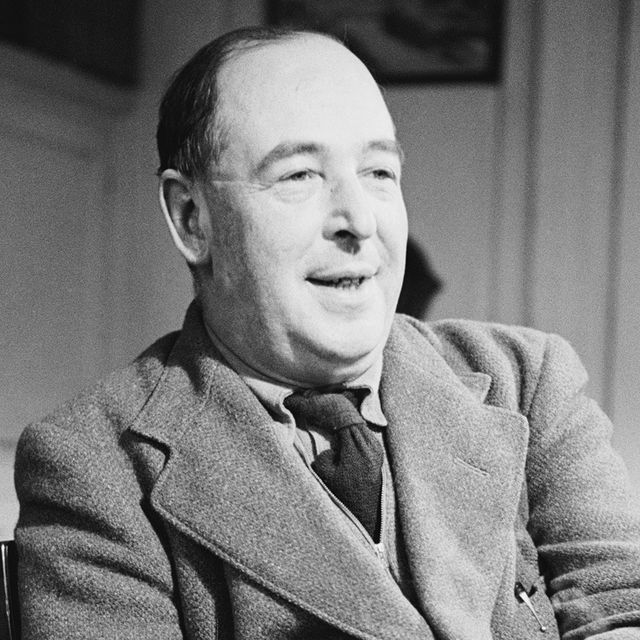
(1898-1963)
Who Was C.S. Lewis?
Writer and scholar C.S. Lewis taught at Oxford University and became a renowned Christian apologist writer, using logic and philosophy to support the tenets of his faith. He is also known throughout the world as the author of The Chronicles of Narnia fantasy series, which have been adapted into various films for the big and small screens.
Clive Staples Lewis was born in Belfast, Ireland, on November 29, 1898, to Flora August Hamilton Lewis and Albert J. Lewis. As a toddler, Clive declared that his name was Jack, which is what he was called by family and friends. He was close to his older brother Warren and the two spent much time together as children.
Lewis was enraptured by fantastic animals and tales of gallantry, and hence the brothers created the imaginary land of Boxen, complete with an intricate history that served them for years. Lewis' mother died when he was 10, and he went on to receive his pre-college education at boarding schools and from a tutor. During WWI, he served with the British army and was sent home after being wounded by shrapnel. He then chose to live as a surrogate son with Janie Moore, the mother of a friend of Lewis' who was killed in the war.
Teaching Career at Oxford and Wartime Broadcasts
Lewis began publishing work including Spirits in Bondage in 1919 and the satirical Dymer in 1926. After penning other titles — including The Allegory of Love (1936), for which he won the Hawthornden Prize — he released in 1938 his first sci-fi work, Out of the Silent Planet , the first of a space trilogy which dealt sub-textually with concepts of sin and desire. Later, during WWII, Lewis gave highly popular radio broadcasts on Christianity which won many converts; his speeches were collected in the work Mere Christianity .
Books and Film Legacy
Lewis was a prolific author of fiction and nonfiction who wrote dozens of books over the course of his career. His faith-based arguments as seen in texts like The Great Divorce (1946) and Miracles (1947) are held in high regard by many theologians, scholars and general readers. His satirical fiction novel The Screwtape Letters (1942) is also a beloved classic. Lewis also continued his love affair with classic mythology and narratives during his later years: His book Till We Have Faces: A Myth Retold (1956) featured the story of Psyche and Cupid. He also penned an autobiography, Surprised by Joy: The Shape of My Early Life (1955).
Lewis' landmark series, The Chronicles of Narnia , has seen a number of on-screen iterations, including a cartoon version of The Lion, The Witch and the Wardrobe that was released in 1979 and a 1989 film series. Additionally, in 2005, a big-screen adaptation of The Lion, The Witch and the Wardrobe hit movie theaters, starring Tilda Swinton as the witch Jadis and Liam Neeson as the voice of Aslan. Two more Narnia films were brought to theaters as well: Prince Caspian (2008) and The Voyage of the Dawn Treader (2010). A movie version of The Silver Chair was slated to hit theaters in the near future, with filming starting in the winter of 2018.
Lewis' relationship with his wife, Joy, has also been depicted in Shadowlands , presented as a play and two films; one of the film versions was directed by Richard Attenborough and starred Anthony Hopkins as Lewis.
'The Chronicles of Narnia'
During the 1940s, Lewis began writing the seven books that would comprise The Chronicles of Narnia children's series, with The Lion, The Witch and the Wardrobe (1950) being the first release. The story focused on four siblings who, during wartime, walk through an armoire to enter the magical world of Narnia, a land resplendent with mythical creatures and talking animals. Throughout the series, a variety of Biblical themes are presented; one prominent character is Aslan, a lion and the ruler of Narnia, who has been interpreted as a Jesus Christ figure. (Lewis would assert that his Narnia stories weren't a direct allegory to the real world.)
Though the book received some negative reviews, it was generally well-received by readers, and the series retained its international popularity over the following decades.
In 1954, Lewis joined the faculty of Cambridge University as a literature professor, and in 1956 he married an American English teacher, Joy Gresham, with whom he had been in correspondence. Lewis was full of happiness during the years of their marriage, though Gresham died of cancer in 1960. Lewis grieved deeply for his wife and shared his thoughts in the book A Grief Observed , using a pen name.
In 1963, Lewis resigned from his Cambridge position after experiencing heart trouble. He died on November 22, 1963, in Headington, Oxford.
QUICK FACTS
- Name: C.S. Lewis
- Birth Year: 1898
- Birth date: November 29, 1898
- Birth City: Belfast
- Birth Country: Ireland
- Gender: Male
- Best Known For: C.S. Lewis was a prolific Irish writer and scholar best known for his 'Chronicles of Narnia' fantasy series and his pro-Christian texts.
- Fiction and Poetry
- Journalism and Nonfiction
- Astrological Sign: Sagittarius
- University College, Oxford
- Death Year: 1963
- Death date: November 22, 1963
- Death City: Oxford
- Death Country: England
We strive for accuracy and fairness.If you see something that doesn't look right, contact us !
CITATION INFORMATION
- Article Title: C.S. Lewis Biography
- Author: Biography.com Editors
- Website Name: The Biography.com website
- Url: https://www.biography.com/authors-writers/cs-lewis
- Access Date:
- Publisher: A&E; Television Networks
- Last Updated: April 20, 2021
- Original Published Date: April 2, 2014
- I did not say to myself, 'Let us represent Jesus as he really is in our world by a lion in Narnia.' I said, 'Let us suppose that there were a land like Narnia and that the Son of God, as he became a man in our world, became a lion there, and then imagine what would happen.'
Famous British People

The Real Royal Scheme Depicted in ‘Mary & George’

William Shakespeare

Anya Taylor-Joy

Kate Middleton, Princess of Wales

Kensington Palace Shares an Update on Kate

Amy Winehouse

Prince William
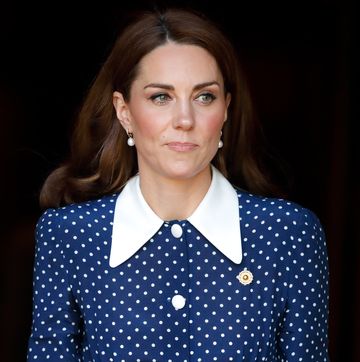
Where in the World Is Kate Middleton?

Christopher Nolan

Emily Blunt
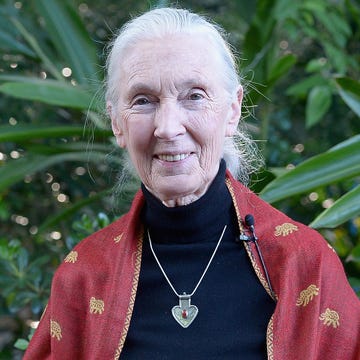
Jane Goodall

5 Books to Celebrate C.S. Lewis’s Birthday
Kate Scott is a bookstagrammer and strategic web designer serving women business owners and creative entrepreneurs. Follow her on Instagram @ parchmentgirl and visit her website at katescott.co/books .
View All posts by Kate Scott
Today is C.S. Lewis’s 117 th birthday! To celebrate, here are five books that explore his life and work.
1. C.S. Lewis – A Life: Eccentric Genius, Reluctant Prophet by Alister McGrath
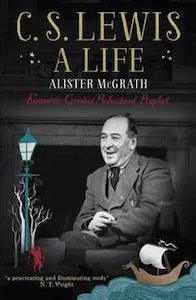
2. The Fellowship: The Literary Lives of the Inklings: J.R.R. Tolkien, C.S. Lewis, Owen Barfield, Charles Williams by Philip Zaleski & Carol Zaleski
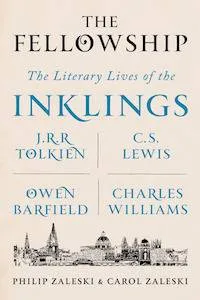
3. Women and C.S. Lewis: What His Life and Literature Reveal for Today’s Culture by Carolyn Curtis & Mary Pomroy Key
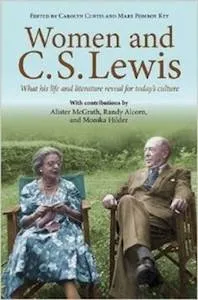
4. Reading C.S. Lewis: A Commentary by Wesley A. Kort
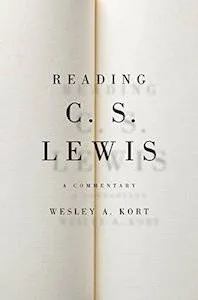
5. The Narnia Code: C.S. Lewis and the Secret of the Seven Heavens by Michael Ward
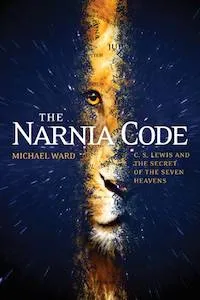
You Might Also Like

- International edition
- Australia edition
- Europe edition
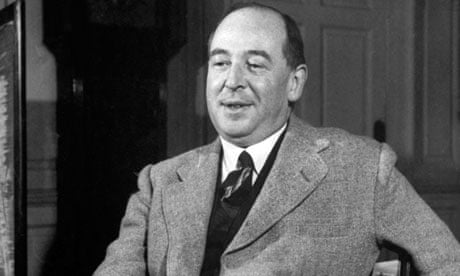
CS Lewis: A Life: Eccentric Genius, Reluctant Prophet by Alister McGrath – review
W hy, you might well ask, do we need another biography of CS Lewis ? We aren't exactly undersupplied. Alister McGrath, a theology professor at King's College London, acknowledges as much. In the face of the "vast amount of biographical and scholarly material now available concerning Lewis and his circle", he says, he is offering "an attempt to identify" the life's "deeper themes and concern, and assess its significance … not a work of synopsis, but of analysis".
So it is, sort of. McGrath's first interest is not in Lewis's life, but in the shape and development of his thought – specifically, his religious thought. This book appears at the same time as he also publishes The Intellectual World of CS Lewis , a collection of eight scholarly essays on aspects of Lewis's theology. It's natural to suppose that the latter is his main concern, and that the notion of a full-length biographical study for the popular market was a side-project pegged to the 50th anniversary of Lewis's death this year.
For many readers, though, the events of his life will be the main interest. And I'm afraid the biographical material is pretty poor stuff. It is prone to asinine generalities ("People have long memories in Belfast") and mealy-mouthed judgments. McGrath incessantly gives us formulations such as "some might say" or "what many would see as", and spurts out great runs of rhetorical questions: "Might there be a deeper meaning to Lewis's imagery … ? Might there be a hint at Lewis's desire … ? Was Mrs Moore both the 'mother' that Lewis had lost and the 'maid' for whom he yearned?"
Above all it is wretched with cliche. Sentence after sentence is inflated with meaningless intensifiers such as "deep", "powerful", "magnificent", "famous" and "prestigious". "Landmark" is a favourite adjective (as in "landmark book"), and the landmarks of McGrath's own text are "crushing personal blows", "tectonic plates", "shattered dreams", "dark shadows", sealed fates and "forces over which he had no control".
Lewis goes to war, for instance. We meet, in the space of two and a half pages, "violence, destruction and horrors", "war, trauma and loss", "horrors", "devastation", "violence, trauma and horror", "traumatic experiences", "horrors" (again), "devastation" (again), and "trauma" (again). A single paragraph sees damage "wreaked" twice on the poor Tommies at the front. Sounds awful, doesn't it? Lewis didn't apparently think so, suggesting in his memoir, Surprised By Joy, that his experiences at English boarding schools were worse than anything he went through in France. McGrath thinks that he's only pretending so – that he's in denial, effectively – but asserts this more than evidences it, apparently on the a priori basis of the horridness of war.
That said, all the familiar points are dutifully rehearsed: the loss of his mother ("traumatic" … "traumatic"); the long romantic cohabitation with the mother of one of his friends; the up-and-down friendship with JR Tolkien ; the conversion from atheism to philosophical theism and then to "mere Christianity"; the meetings of the Inklings in the Eagle and Child pub in Oxford; celebrity as a religious broadcaster; academic snubs; marriage in late life to the on-the-make American Joy Davidson ("a ticking time bomb" … "a Trojan horse"); her death ("emotional firestorm" … "emotional battering ram").
He does have one big scoop, though – or semi-big. McGrath argues that Lewis's religious conversion did not take place, as Lewis claimed in the sometimes muddled Surprised By Joy , in Trinity term of 1929, but about a year later. Close reading of Lewis's correspondence at the time – as well as some Poirot-like work on the question of when bluebells flower at Whipsnade Zoo – leads our man to the later date. This is smart and plausible. He seems to be right. I'm less persuaded of what he calls "the importance of this question", however. Whether he found God in the early summer of 1929 or 1930 doesn't bear materially on Lewis's work – and as McGrath himself writes: "In the end, it is not so much the precise date of Lewis's conversion to Christianity, as its implications for his future writings that is of ultimate importance." It may also be a sign of the outstanding boringness of the outward facts of Lewis's religious conversion that, of the dozens of scholars who have crawled through Lewis's life and works like carpet-beetles, none has previously noticed the error.
Still, good to have it corrected. And McGrath's work on Lewis's theology in this volume is much the best of it. There are good, clear explanations of Lewis's ideas about myth, the distinctions he made between the "imaginary" and the "imaginative", or "allegory" and "supposal". McGrath – no objection in itself, but a clue as to the weighting of his book – reads Lewis's fiction primarily through its importance as a work of "imaginative narrative apologetics" (as opposed to rational apologetics – a distinction that he handles well) rather than as literary artefacts.
The cloth ear returns when it comes to literary history. That matters: Lewis's chair was in literature, not theology. I love The Lord of the Rings, too, but calling it "one of the great works of 20th-century literature" seems a bit much. To say that the Narnia stories "captivated the imagination of a generation", to earnestly affirm that The Waste Land is "still widely acknowledged as one of the finest and most discussed poems of the 20th century" or that Ulysses showed "radical literary innovation" is not exactly high-wattage stuff. A final chapter on Lewis's reputational afterlife gives more detailed attention to his popularity in the US as a cross-denomination Christian apologist, and to his being taken up by the evangelical movement that once spurned him as a heretic, than it does to his literary or scholarly legacy.
More culpably, even when on home turf McGrath seldom takes Lewis to task. He gives a lucid account of Lewis's line on "chronological snobbery", for instance – the idea that it's arrogant to read the past as an imperfect version of the present, rather than realising that every stage of the past was once the present, and that present orthodoxies will in due course seem just as muddled as those of the past do to us. But he gives the idea a free pass (clearly it's less true of some aspects of intellectual life – such as medicine or mathematics – than others), and he raises no flags in this context over Lewis's blatantly whiggish notion of Christianity: not as one myth among others, but as the encompassing expression of a truth partially and imperfectly grasped in other systems of religious ideas.
In The Intellectual World of CS Lewis , McGrath doesn't write noticeably better, but you do get a fuller sense, essay by essay, of Lewis's intellectual and spiritual genealogy – of the influences, say, of GK Chesterton and Augustine in Surprised by Joy , or of Max Müller on Lewis's theories of myth. McGrath's Intellectual World , too, suffers from Lewis-reverence – "He was right on all four counts," is the unqualified assertion in the conclusion to one essay – but it adds to what we know, and is clear enough for the interested generalist to follow.
CS Lewis wrote in a way that has made sense to very many people, with faith and without it, about what it feels like to make the intellectual and spiritual move from atheism to belief. McGrath has a fine apprehension of how he did so, and admires him for it with little qualification. But in answer to the question with which I opened this review, I'd have to say: I don't know if we do need another biography of CS Lewis, and if we do, it isn't this one.
- Biography books
Comments (…)
Most viewed.

- Biographies
- Works Authored by C.S. Lewis
- Reading Guides
- Journal Literature
- C.S. Lewis And...
- Narnia Resources
- Additional Resources
- Finding Aid
- 'Early Prose Joy': C.S. Lewis's Early Draft of an Autobiographical Manuscript This previously little-known autobiographical account of Lewis’s conversion from Atheism to Theism was transcribed and published, changing the date of Lewis’s first conversion and significantly altering the understanding of that crucial period.
By Other Authors
- << Previous: Home
- Next: Works Authored by C.S. Lewis >>
- Last Updated: Aug 3, 2023 3:47 PM
- URL: https://guides.library.vts.edu/cs-lewis

10 of the Best Books by C. S. Lewis
By Dr Oliver Tearle (Loughborough University)
Although Clive Staples Lewis (1898-1963) – known as ‘Jack’ to his friends and family – is best-known for his seven children’s fantasy novels set in the land of Narnia, C. S. Lewis wrote a number of other works – fiction and non-fiction, science fiction and literary criticism – which have become classics in their field.
Below, we introduce ten of the very best works of C. S. Lewis, which any Lewis fan should seek out. They are not arranged in any preferential order.
Disclaimer: as an Amazon Associate, we get commissions for purchases made through links in this post.
1. The Allegory of Love .
Lewis’s most famous book, The Lion, the Witch and the Wardrobe , is often described as Christian allegory – although Lewis himself denied that it was an allegory .
Nevertheless, over a decade before he published that first Narnia book, Lewis had already made his name as a literary critic with this 1936 book which argues that medieval courtly love poetry did more to revolutionise our conception of romantic love than the Renaissance.
2. The Magician’s Nephew .
Although it was the sixth published Narnia novel, in 1955, this novel was a prequel, set before the events of the earlier published novels, and so is often named as the ‘first’ book in the Chronicles of Narnia (Lewis took the name Narnia from an old map which included Narni, a region of Italy).
One of Lewis’s inspirations for writing a prequel was a query from a friend about the lantern which stands in the middle of Narnia, in the place where Lucy meets the faun Mr Tumnus in The Lion, the Witch and the Wardrobe .
This novel, then, is a kind of Old Testament creation story, telling how Aslan created the world of Narnia 1,000 years before the events of The Lion, the Witch and the Wardrobe , thanks in part to a lantern taken from our world (London in the year 1900, to be precise).
3. The Screwtape Letters .
This 1942 novel is a work of Christian apologetics, and takes the form of a series of letters written by Screwtape, a demon, to his nephew, Wormwood. The novel is, first and foremost, about temptation and the Christian’s responsibility to resist it. It’s witty and satirical while Lewis also raises some interesting theological questions through the epistolary form.
4. Out of the Silent Planet .
The first in a loose trilogy of science-fiction novels Lewis wrote, whose protagonist (a philologist) was based on Lewis’s friend and fellow Inkling, J. R. R. Tolkien. Published in 1938, it’s Lewis’s earliest great work of fiction and a planetary romance influenced by David Lindsay’s (odd) 1920 novel A Voyage to Arcturus .
Although its pacing leaves a lot to be desired and it isn’t exactly action-packed, it’s a noteworthy early work of British science fiction.
5. The Problem of Pain .
Published two years before The Screwtape Letters , in 1940, this book takes another theological issue – in this case, the problem of pain and suffering and why a loving God would allow it to exist in the world – and explores it, but this time in a non-fiction work.
6. The Discarded Image.
Another work of non-fiction, this was his last book, published posthumously in 1964 following Lewis’ death in November the previous year (famously, he died on the same day that JFK was assassinated – the same day on which Aldous Huxley also died).
It’s an accessible and highly readable introduction to the various philosophical and scientific belief systems underpinning medieval and Renaissance literature, shot through with Lewis’s strong opinions on the literature of both periods.
7. The Silver Chair .
Along with The Horse and His Boy , this is probably the most neglected of the seven Chronicles of Narnia , although it’s less easy to see why in the case of The Silver Chair . It doesn’t feature any of the core Pevensie children, instead focusing on Eustace Scrubb (from The Voyage of the Dawn Treader ) and his schoolmate Jill Pole, who escape school bullies by entering the world of Narnia.
A cast of some of Lewis’s best characters, including Puddleglum the Marsh-Wiggle and the villainous Lady of the Green Kirtle, make this one of Lewis’s best Narnia novels.
8. Prince Caspian .
The second published novel in the Chronicles of Narnia , Prince Caspian was published in 1951 and sees the four Pevensie children who appeared in The Lion, the Witch and the Wardrobe return to Narnia to help the titular prince to win the crown. There are some nice references to events and objects which featured in the first novel, which was set some 1,300 years earlier in Narnian history.
9. The Voyage of the Dawn Treader .
This is the ‘sea story’ in the seven-part Chronicles of Narnia : this time, it is not a wardrobe but a painting of a ship that acts as the portal through to Narnia. Lucy and Edmund, the two youngest Pevensie children, are transported back into Narnia along with their cousin, the unpopular Eustance Clarence Scrubb, a boy so objectionable that he ‘almost deserved’ his name.
The third Narnia book to be published and the fifth in terms of the series’ internal chronology, it’s one of the most exciting adventures in the whole heptalogy.
10. The Lion, the Witch and the Wardrobe .
As mentioned above, this 1950 novel, the first published book in the Chronicles of Narnia , is viewed by most as an allegory for the New Testament story of Jesus’ Crucifixion and Resurrection.
Four siblings, staying at an eccentric professor’s house to escape the air raids of the Second World War, discover a portal at the back of a wardrobe, which leads through to the snow-covered land of Narnia where it is ‘always winter but never Christmas’. The book, published in 1950, launched the fantasy series for which Lewis is now best-known. We have analysed this classic novel in depth here .
3 thoughts on “10 of the Best Books by C. S. Lewis”
Big Narnia fan!
Why does Philip Pullman hate him ?
Leave a Reply Cancel reply
<script id=”mcjs”>!function(c,h,i,m,p){m=c.createElement(h),p=c.getElementsByTagName(h)[0],m.async=1,m.src=i,p.parentNode.insertBefore(m,p)}(document,”script”,”https://chimpstatic.com/mcjs-connected/js/users/af4361760bc02ab0eff6e60b8/c34d55e4130dd898cc3b7c759.js”);</script>
Discover more from Interesting Literature
Subscribe now to keep reading and get access to the full archive.
Continue reading

Follow C.S. LEWIS:

About C.S. LEWIS
Find out all you need to know about the author.
Image credit: The Wade Center
Clive Staples Lewis (1898–1963) was one of the intellectual giants of the twentieth century and arguably one of the most influential writers of his day. He was a Fellow and Tutor in English Literature at Oxford University until 1954, when he was unanimously elected to the Chair of Medieval and Renaissance Literature at Cambridge University, a position he held until his retirement.
Lewis wrote more than thirty books, allowing him to reach a vast audience, and his works continue to attract thousands of new readers every year. C. S. Lewis’s most distinguished and popular accomplishments include Mere Christianity , Out of the Silent Planet , The Great Divorce , The Screwtape Letters , and the universally acknowledged classics in The Chronicles of Narnia . To date, the Narnia books have sold over 100 million copies and been transformed into three major motion pictures.
EXPLORE THE C.S. LEWIS TIMELINE
Clive Staple Lewis born in Belfast, Ireland.
Lewis’s mother, Florence Augusta (‘Flora’) Hamilton Lewis, dies.
Sent to the Wynyard School in Watford, Hertfordshire, England.
Enrolls as boarding student at Campbell College, Belfast, Ireland; leaves in December due to respiratory problems.
Enrolls at Cherboug House near Malvern College, England; abandons his Christian faith.
Meets Arthur Greeves, who becomes a lifelong friend.
Is privately tutored by W. T. "The Great Knock" Kirkpatrick.
Receives a scholarship to University College, Oxford.
Enlists in British Army.
Lewis’s close friend Paddy Moore reported killed in battle.
Wounded in Battle of Arras.
Discharged from British Army.
Moves in with Moore’s mother, Mrs Janie King Moore, and sister, Maureen.

Publishes Spirits in Bondage under the pseudonym Clive Hamilton. Buy this book -->
Appointed English Fellow of Magdalen College, Oxford, where he tutors English Language and Literature.
Meets friend and colleague J.R.R. Tolkien.

Publishes Dymer under the pseudonym Clive Hamilton. Buy this book -->
Lewis’s father, Albert Lewis, dies in Belfast.
Abandons atheism and converts to theism.
Lewis, the Moores, and later Warren, Lewis's brother, move into "The Kilns".
Converts to Christianity.

Publishes The Pilgrim’s Regress .

Publishes The Allegory of Love . Buy this book

Publishes the first novel in the Space Trilogy series, Out of the Silent Planet. Buy this book
Weekly meetings of the "Inklings" begin.

Publishes The Problem of Pain. Buy this book

Begins war-time broadcast talks on Christianity, later collected as Mere Christianity. Buy this book
Attends the first meeting of Oxford University's Socratic Club.

Publishes The Screwtape Letters. Buy this book

Publishes Broadcast Talks , based on BBC recordings.

Publishes A Preface to Paradise Lost .

Publishes The Abolition of Man . Buy this book

Publishes Christian Behaviour , based on BBC recordings.

Publishes the second novel in the Space Trilogy series, Perelandra. Buy this book

Publishes Beyond Personality , based on BBC recordings.

Publishes the third novel in the Space Trilogy series, That Hideous Strength. Buy this book

Publishes The Great Divorce. Buy this book
Awarded an honorary Doctor of Divinity by the University of St. Andrews.

Publishes Miracles. Buy this book
Appears on the cover of Time magazine.
Elected Fellow of the Royal Society of Literature.

Publishes The Weight of Glory and Other Addresses. Buy this book

Publishes the first novel in the Chronicles of Narnia series, The Lion, the Witch, and the Wardrobe. Buy this book
Mrs. Moore dies.

Publishes the second novel in the Chronicles of Narnia series, Prince Caspian: The Return to Narnia. Buy this book
Publishes Mere Christianity , which combines previously published Broadcast Talks (1942), Christian Behavior (1943), and Beyond Personality (1944). Buy this book

Publishes the third novel in the Chronicles of Narnia series, The Voyage of the Dawn Treader. Buy this book

Publishes the fourth novel in the Chronicles of Narnia series, The Silver Chair. Buy this book
Becomes chair of Medieval and Renaissance Literature at Cambridge.

Publishes the fifth novel in the Chronicles of Narnia series, The Horse and His Boy . Buy this book

Publishes English Literature in the Sixteenth Century .

Publishes the sixth novel in the Chronicles of Narnia series, The Magician’s Nephew. Buy this book

Publishes Surprised By Joy. Buy this book

Publishes the seventh, and final, novel in the Chronicles of Narnia series, The Last Battle. Buy this book
Marries Joy Davidman Gresham.

Publishes Till We Have Faces. Buy this book

Publishes Reflections on the Psalms. Buy this book
Becomes, with T. S. Eliot, a member of the Commission to Revise the Psalter.

Publishes The Four Loves. Buy this book
Lewis’s wife dies.

Publishes Studies in Words. Buy this book
Diagnosed with kidney inflammation.

Publishes A Grief Observed under the pseudonym N. W. Clerk. Buy this book

Publishes An Experiment in Criticism. Buy this book

Posthumously publishes Letters to Malcolm: Chiefly on Prayer. Buy this book

Posthumously publishes The Discarded Image. Buy this book

Posthumously publishes Studies in Medieval and Renaissance Literature. Buy this book
SIGN UP FOR OUR NEWSLETTER:
- Month Month January February March April May June July August September October November December
- Day Day 01 02 03 04 05 06 07 08 09 10 11 12 13 14 15 16 17 18 19 20 21 22 23 24 25 26 27 28 29 30 31
- Year Year 2024 2023 2022 2021 2020 2019 2018 2017 2016 2015 2014 2013 2012 2011 2010 2009 2008 2007 2006 2005 2004 2003 2002 2001 2000 1999 1998 1997 1996 1995 1994 1993 1992 1991 1990 1989 1988 1987 1986 1985 1984 1983 1982 1981 1980 1979 1978 1977 1976 1975 1974 1973 1972 1971 1970 1969 1968 1967 1966 1965 1964 1963 1962 1961 1960 1959 1958 1957 1956 1955 1954 1953 1952 1951 1950 1949 1948 1947 1946 1945 1944 1943 1942 1941 1940 1939 1938 1937 1936 1935 1934 1933 1932 1931 1930 1929 1928 1927 1926 1925 1924 1923 1922 1921 1920 1919 1918 1917 1916 1915 1914 1913 1912 1911 1910 1909 1908 1907 1906 1905 1904 1903 1902 1901 1900
Biography of C.S. Lewis, British Writer
Hans Wild / Getty Images
- Authors & Texts
- Top Picks Lists
- Study Guides
- Best Sellers
- Plays & Drama
- Shakespeare
- Short Stories
- Children's Books
- Master of Studies, University of Oxford
- Bachelor of Arts, Brown University
C.S. Lewis (November 29, 1898 – November 22,1963) was a British fantasy writer and scholar. Known for his imaginative fantasy world of Narnia and, later, his writings on Christianity, Lewis’ life was informed by a search for higher meaning. He remains to this day one of most beloved children’s authors in English.
Fast Facts: C.S. Lewis
- Full Name: Clive Staples Lewis
- Known For: His series of fantasy novels set in Narnia and his Christian apologist writings
- Born: November 29, 1898 in Belfast, United Kingdom
- Parents: Florence Augusta and Albert James Lewis
- Died: November 22, 1963 in Oxford, United Kingdom
- Education : Oxford University, Malvern College, Cherbourg House, Wynyard School
- Published Works: The Chronicles of Narnia (1950-1956), Mere Christianity , Screwtape Letters , Surprised by Joy
- Spouse: Joy Davidman
- Children: two stepsons
Clive Staples Lewis was born in Belfast, Ireland, to Albert James Lewis, a solicitor, and Florence Augusta Lewis, the daughter of a clergyman. He spent a happy, if prosaic, childhood in middle-class Belfast. Neither of his parents was interested much in poetry; as Lewis writes in his auto-biography, “Neither had ever listened for the horns of elfland.” His early life in Belfast was marked by its lack of “otherworldly” features, including meager religious experience.
However, Lewis was born a romantic. He remarked later that he learned longing from the distant Castlereagh Hills, which he could see from his first home in Belfast. He was not alone in his latent romanticism; his elder brother and lifelong best friend, Warren, was similar in temperament. As children, the two would spend hours drawing and writing stories set in their respective fantasy worlds. Warnie had chosen an imagined version of industrialized India, complete with steam engines and battles, and Clive, known as Jack, founded “Animal-Land,” where anthropomorphic animals dwelt in a medieval world. The two decided Animal-Land had to be an earlier version of Warnie’s India, and they named the world “Boxen.” When Warnie went off to an English boarding school called Wynyard, Jack became a voracious reader, enjoying his father’s large library. He also continued his own education in French and Latin lessons with his mother and mathematics with a governess, and while he was neither isolated nor quiet, Lewis’ vivid imagination found him increasingly opting for solitude. It was during this time that he began to experience, while reading the epics of the Norse, what he later called Joy, "which must be sharply distinguished from Happiness or Pleasure... It might almost equally well be called a particular type of unhappiness or grief." He spent much of his life in search of this mysterious, otherworldly feeling.
When he was 9 years old, Lewis underwent two experiences that ended the tranquility of childhood. First, his mother died from cancer. His father never recovered from the loss, and grief’s effect on him was a wild anger and instability which alienated his boys. Jack was then sent to the English boarding school that his older brother attended, Wynyard, a school of about 20 boys.
The school was run by an eccentric man, Robert “Oldie” Capron, who administered almost random corporal punishment and taught the boys almost nothing. While Lewis recalled his school days there as miserable, he also cited Wynyard with teaching him the value of friendship and of standing united against a common foe.
The school soon shut down due to lack of students, with Oldie committing to a psychiatric hospital, and so Lewis moved to Campbell College in Belfast, about a mile from his home. He lasted less than a term at this school and was removed for health problems. Not long thereafter his father sent him to Cherbourg House, a school in the same town as his brother’s Malvern College. It was at Cherbourg House that Lewis lost the Christian faith of his childhood, becoming interested instead in the occult.
Lewis did very well at Cherbourg House and was granted a scholarship to study at Malvern College, where he started in 1913 (which his brother had since left, matriculating as a military cadet at Sandhurst). Quickly he learned to hate the socially aggressive school in the elite British “public school” tradition. However, he advanced quickly in Latin and Greek, and it was there that Lewis discovered how deep his love went for “Northernness,” as he called it, Norse mythology, the Nordic sagas, and the artistic works they inspired, including Wagner’s "Ring Cycle." He began experimenting with new ways of writing beyond Animal-Land and Boxen, composing epic poetry inspired by Norse mythology.
In 1914, Lewis withdrew from the hated Malvern College and was tutored by a friend of his father’s in Surrey, W.T. Kirkpatrick, known by his family as “The Great Knock.” Under Kirkpatrick’s tuition, Lewis entered into one of the happiest times of his life, studying all day and reading by night.
War Years (1917-1919)
- Spirits in Bondage (1919)
Lewis gained admission into University College, Oxford, in 1917. He enlisted in the British army (the Irish were not required to conscript), and was trained at Keble College, Oxford, where he met a dear friend, Paddy Moore. The two promised if one died, the other would take care of his family.
Lewis arrived at the front line in the Somme Valley on his 19th birthday. Although he hated the army, he found the camaraderie made it better than the aggressive Malvern College. In early 1918, he was wounded by a shell and sent back to England to convalesce. He spent the rest of his time in the army in Andover, England, and was discharged in December 1919.
Upon returning from the war, Lewis published, with Knock's encouragement, a book of poetry called Spirits in Bondage (1919). However, the book received no reviews, to the chagrin of its 20-year-old author.
Oxford Studies and Path to Religion (1919-1938)
- Dymer (1926)
- Pilgrim’s Regress (1933)
Lewis studied at Oxford upon returning from the war till 1924. Once finished, he received a triple first, the highest honor in three degrees, including in Honour Moderations (Greek and Latin literature), in Greats (Philosophy and Ancient History), and in English. During this time, Lewis moved in with Jane Moore, the mother of his friend Paddy Moore, to whom he became so close that he would introduce her as his mother. When Lewis finished his studies in 1924, he stayed in Oxford, becoming a philosophy tutor at University College, and the following year was elected a fellow at Magdalen College. He published Dymer in 1926, a long narrative poem.
In philosophical conversation with friends, including writer and philosopher Owen Barfield, Lewis became more and more convinced of the “Absolute” of Idealism, a universe or “wholeness” that contains all possibilities within it, although he refused to admit the similarity of this idea with that of God. In 1926, Lewis met J.R.R. Tolkien, a devout Roman Catholic philologist also studying at Oxford. In 1931, after a long discussion with his friends Tolkien and Hugo Dyson, Lewis converted to Christianity, which was to become a huge and lasting influence in his life.
In the fall term of 1933, Lewis and his friends began weekly meetings of an informal group that became known as the “Inklings.” They met each Thursday night in Lewis’ rooms at Magdalen and Mondays or Fridays at the Eagle & Child pub in Oxford (known to the locals as “The Bird & Baby”). Members included J.R.R. Tolkien, Warren Lewis, Hugo Dyson, Charles Williams, Dr. Robert Havard, Owen Barfield, Weville Coghill, and others. The group’s primary purpose was to read aloud the unfinished writings of their members, including Tolkien’s Lord of the Rings and Lewis’ work-in-progress Out of the Silent Planet. Meetings were friendly and fun, and were a lasting influence on both Tolkien and Lewis.
Lewis also published at this time an allegorical novel, Pilgrim's Regress (1933), a reference to John Bunyan's Pilgrim's Progress, though the novel was received to mixed reviews.
Scholarly Career (1924-1963)
Scholarly works.
- The Allegory of Love: A Study in Medieval Tradition (1936)
- A Preface to Paradise Lost (1942)
- The Abolition of Man (1943)
- Miracles (1947)
- Arthurian Torso (1948)
- Transposition, and Other Addresses (1949)
- English Literature in the Sixteenth Century Excluding Drama (1954)
- Reflections on the Psalms (1958)
- Studies in Words (1960)
- An Experiment in Criticism (1961)
- They Asked for a Paper: Papers and Addresses (1962)
Lewis was to serve as tutor in English Language and Literature at Magdalen College, Oxford, for 29 years. Much of his work in English revolved around the later Middle Ages. In 1935, he agreed to write a volume for the Oxford History of English Literature on 16th century English literature, which became a classic when it was published in 1954. He also received the Gollancz Memorial Prize for Literature for his Allegory of Love in 1937. His Preface to Paradise Lost remains influential to this day.
He tutored poet John Betjeman, mystic Bede Griffiths, and novelist Roger Lancelyn Green, among others. In 1954, he was invited to become the chair of the newly founded Medieval and Renaissance Literature at Magdalene College, Cambridge, though he kept a home in Oxford until his death, where he visited on weekends and holidays.
Second World War and Christian Apologetics (1939-1945)
- The Space Trilogy: Out of the Silent Planet (1938)
- Screwtape Letters (1942)
- The Case for Christianity (1942)
- Christian Behaviour (1943)
- The Space Trilogy: Perelandra (1943)
- Beyond Personality (1944)
- The Space Trilogy: That Hideous Strength (1945)
- The Great Divorce (1945)
- Mere Christianity: A Revised and Amplified Edition, with a New Introduction, of the Three Books, Broadcast Talks, Christian Behaviour, and Beyond Personality (1952)
- The Four Loves (1960)
- The World’s Last Night and Other Essays (1960)
In 1930, the Lewis brothers and Jane Moore had bought a house, called “The Kilns,” in Risinghurst, just outside of Oxford. In 1932, Warren retired from the military and moved in with them. At the outbreak of the Second World War, the Lewises took in child evacuees from major cities, which Lewis suggested later gave him a greater appreciation for children and inspired the first novel of the Narnia universe, The Lion, the Witch, and the Wardrobe (1950).
Lewis was active in his fiction writing at this time. He finished his Space Trilogy, whose main character was partly based off Tolkien. The series deals with the question of sin and human redemption, as well as offering an alternative to the dehumanizing science fiction trends that Lewis and other Inklings saw developing at the time.
In 1941, The Guardian (a religious paper that ceased publication in 1951) published 31 of Lewis’ “Screwtape Letters” in weekly installments. Each letter was from a senior demon, Screwtape, to his nephew Wormwood, a junior tempter. Later published as The Screwtape Letters in 1942, the satirical and humorous epistolary novel was dedicated to Tolkien.
Since he could not enlist at age 40, Lewis spoke on several BBC radio programs on Christian teachings, and provided what many called a public service that lent meaning to a hopeless time. These radio talks were published as The Case for Christianity (1942) , Christian Behavior (1943) , and Beyond Personality (1944) , and were later anthologized in Mere Christianity (1952) .
Narnia (1950-1956)
- Surprised by Joy (1955)
- Chronicles of Narnia: The Lion, the Witch, and the Wardrobe (1950)
- Chronicles of Narnia: Prince Caspian (1951)
- Chronicles of Narnia: The Voyage of the Dawn Treader (1952)
- Chronicles of Narnia: The Silver Chair (1953)
- Chronicles of Narnia: The Horse and His Boy (1954)
- Chronicles of Narnia: The Magician’s Nephew (1955)
- Chronicles of Narnia: The Last Battle (1956)
- Till We Have Faces (1956)
Back in 1914, Lewis had been struck with the image of a faun carrying an umbrella and parcels in a snowy wood, perhaps from his days imagining the anthropomorphic animals of Boxen. In September 1939, after three schoolgirls came to live at the Kilns, Lewis started writing The Lion, the Witch, and the Wardrobe. Lewis dedicated the first book to his goddaughter Lucy Barfield (daughter of Owen Barfield, fellow Inkling). The story was published in 1950.
Although much has been made of the Christian influence on Narnia and Aslan’s correspondence to Jesus Christ, Lewis claimed the series was not meant to be allegorical. The name Narnia comes from the Italian town of Narni, written in Latin as Narnia, which Lewis found on a map of ancient Italy. The books were immediately immensely popular, and remain to this day one of the most beloved children’s series.
Even before the vast success of his novel series, in 1951, Lewis was offered the honor of becoming a Commander of the Order of the British Empire (CBE), one of the highest awards for contributions to the arts and sciences in Great Britain. However, not wanting to be associated with politics, Lewis refused.
Marriage (1956-1960)
- A Grief Observed (1961)
In 1956, Lewis agreed to a civil marriage with Joy Davidman, an American writer. Davidman was born into a Jewish but atheist family and was quickly seen to be a child prodigy, and developed from an early age a love of fantasy novels. She met her first husband in the American Communist party, but divorced him after an unhappy and abusive marriage.
She and Lewis had been corresponding for a time, and Lewis originally saw her as an intellectual equal and a friend. He agreed to marry her so that she could stay in the United Kingdom. When she saw the doctor for a painful hip, she was diagnosed with bone cancer, and the two grew closer. Eventually the relationship developed to the point that they sought a Christian marriage in 1957, which was performed at Joy's bedside. When the cancer went into remission, the couple enjoyed several years together, continuing to live as a family with Warren Lewis. When her cancer returned, however, she died in 1960. Lewis anonymously published his journals at the time in a book called A Grief Observed, where he admitted to a grief so great that it saw him doubting God, but felt blessed to have experienced true love.
Later Life and Death (1960-1963)
In June 1961, Lewis fell ill with nephritis and took the autumn term off at Cambridge. By 1962, he felt well enough to continue teaching. When he fell ill again in 1963 and suffered a heart attack, he resigned his post at Cambridge. He was diagnosed with end-stage renal failure and died in November of 1963. He is buried in Headington, Oxford, alongside his brother Warren.
C.S. Lewis is seen as one of the founding fathers of the genre of fantasy. He continues to be considered one of Britain's most important writers, and has been the subject of several biographies.
Lewis can be seen as a foundational influence in all modern fantasy literature, from Harry Potter to Game of Thrones. Philip Pullman, author of His Dark Materials, is seen as almost an anti-Lewis due to his stark atheism. Critique of Lewis ranges from sexism (focusing on the role of Susan in The Lion, the Witch, and the Wardrobe), racism (the Arab-inflected world of The Horse and His Boy), and hidden religious propaganda. While readers of Lewis often are surprised by the Christian underpinnings to much of his work, his Narnia series is one of the most beloved of all children's literature. Three of the books have been turned into Hollywood films, including The Lion, the Witch and the Wardrobe, Prince Caspian, and Voyage of the Dawn Treader.
His marriage to Joy Davidman became the model for the BBC film, stage play, and theatrical film Shadowlands.
- Lewis, C.S. Surprised by Joy. William Collins, 2016.
- The Life of C.S. Lewis Timeline - C.S. Lewis Foundation . http://www.cslewis.org/resource/chronocsl/. Accessed 25 Nov. 2019.
- Carpenter, Humphrey. The Inklings: C. S. Lewis, J. R. R. Tolkien and Their Friends. HarperCollins Publishers, 2006.
- All About The Chronicles of Narnia and Author C.S. Lewis
- 8 Famous Authors Who Used Secret Pseudonyms
- Using the Spanish Conjunction ‘Y’
- Past Perfect Progressive (Verbs)
- Biography of Oscar Wilde, Irish Poet and Playwright
- Biography of Lewis Carroll, Author of Children's Books and Mathematician
- What Is an Antagonist?
- Biography of Samuel Johnson, 18th Century Writer and Lexicographer
- "The Wonderful Wizard of Oz" Study Guide
- Biography of John Updike, Pulitzer Prize Winning American Author
- Biography of T.S. Eliot, Poet, Playwright, and Essayist
- Biography of Paulo Coelho, Brazilian Writer
- Lewis Surname Meaning and Origin
- Why We Don't Read
- Biography of Roald Dahl, British Novelist

- Biographies & Memoirs
- Arts & Literature

Enjoy fast, free delivery, exclusive deals, and award-winning movies & TV shows with Prime Try Prime and start saving today with fast, free delivery
Amazon Prime includes:
Fast, FREE Delivery is available to Prime members. To join, select "Try Amazon Prime and start saving today with Fast, FREE Delivery" below the Add to Cart button.
- Cardmembers earn 5% Back at Amazon.com with a Prime Credit Card.
- Unlimited Free Two-Day Delivery
- Streaming of thousands of movies and TV shows with limited ads on Prime Video.
- A Kindle book to borrow for free each month - with no due dates
- Listen to over 2 million songs and hundreds of playlists
- Unlimited photo storage with anywhere access
Important: Your credit card will NOT be charged when you start your free trial or if you cancel during the trial period. If you're happy with Amazon Prime, do nothing. At the end of the free trial, your membership will automatically upgrade to a monthly membership.
Buy new: $19.56 $19.56 FREE delivery: Monday, April 29 on orders over $35.00 shipped by Amazon. Ships from: Amazon Sold by: Willows Book Store
Return this item for free.
Free returns are available for the shipping address you chose. You can return the item for any reason in new and unused condition: no shipping charges
- Go to your orders and start the return
- Select the return method
Buy used: $14.59
Fulfillment by Amazon (FBA) is a service we offer sellers that lets them store their products in Amazon's fulfillment centers, and we directly pack, ship, and provide customer service for these products. Something we hope you'll especially enjoy: FBA items qualify for FREE Shipping and Amazon Prime.
If you're a seller, Fulfillment by Amazon can help you grow your business. Learn more about the program.

Download the free Kindle app and start reading Kindle books instantly on your smartphone, tablet, or computer - no Kindle device required .
Read instantly on your browser with Kindle for Web.
Using your mobile phone camera - scan the code below and download the Kindle app.

Image Unavailable

- To view this video download Flash Player
Follow the author

C. S. Lewis: A Biography Paperback – August 17, 2002
Purchase options and add-ons.
A subtle and poignant portrayal of the creator of The Chronicles of Narnia .
- Print length 368 pages
- Language English
- Publisher W. W. Norton & Company
- Publication date August 17, 2002
- Dimensions 5.5 x 1 x 8.2 inches
- ISBN-10 0393323404
- ISBN-13 978-0393323405
- See all details

Frequently bought together

Similar items that may deliver to you quickly

Editorial Reviews
About the author, product details.
- Publisher : W. W. Norton & Company (August 17, 2002)
- Language : English
- Paperback : 368 pages
- ISBN-10 : 0393323404
- ISBN-13 : 978-0393323405
- Item Weight : 1 pounds
- Dimensions : 5.5 x 1 x 8.2 inches
- #13,759 in Author Biographies
About the author
A. n. wilson.
Discover more of the author’s books, see similar authors, read author blogs and more
Customer reviews
Customer Reviews, including Product Star Ratings help customers to learn more about the product and decide whether it is the right product for them.
To calculate the overall star rating and percentage breakdown by star, we don’t use a simple average. Instead, our system considers things like how recent a review is and if the reviewer bought the item on Amazon. It also analyzed reviews to verify trustworthiness.
- Sort reviews by Top reviews Most recent Top reviews
Top reviews from the United States
There was a problem filtering reviews right now. please try again later..
Top reviews from other countries
- Amazon Newsletter
- About Amazon
- Accessibility
- Sustainability
- Press Center
- Investor Relations
- Amazon Devices
- Amazon Science
- Sell on Amazon
- Sell apps on Amazon
- Supply to Amazon
- Protect & Build Your Brand
- Become an Affiliate
- Become a Delivery Driver
- Start a Package Delivery Business
- Advertise Your Products
- Self-Publish with Us
- Become an Amazon Hub Partner
- › See More Ways to Make Money
- Amazon Visa
- Amazon Store Card
- Amazon Secured Card
- Amazon Business Card
- Shop with Points
- Credit Card Marketplace
- Reload Your Balance
- Amazon Currency Converter
- Your Account
- Your Orders
- Shipping Rates & Policies
- Amazon Prime
- Returns & Replacements
- Manage Your Content and Devices
- Recalls and Product Safety Alerts
- Conditions of Use
- Privacy Notice
- Consumer Health Data Privacy Disclosure
- Your Ads Privacy Choices
Biography Online

C.S. Lewis Biography
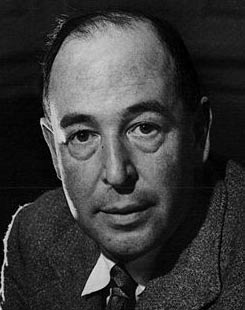
Clive Staples Lewis was born on 29 November 1898 and lived until 22 November 1963. He was born in Belfast, North Ireland into a Protestant Ulster family. Throughout his life, he retained strong roots to Ireland. He sought out the company of the Irish and took an active interest in Celtic literature and myths. He was a keen admirer of the works of W.B.Yeats, at a time when he was relatively unknown in England.
Lewis was educated at a variety of private tuition and public schools such as Malvern in Worcestershire. His time in public school was not particularly happy, and he later wrote in disparaging times of how schoolboys were mistreated. However, in 1916, Lewis was offered a scholarship at University College, Oxford University. He proved an excellent student, ultimately, gaining a triple first (the top classification in three different degrees). In 1917, his university life was interrupted as he volunteered to join the British army in the First World War. He was transferred to the Somme valley where he took part in trench warfare.
In the last months of the war, he was injured by a shell and was sent home to recuperate from his injuries. During his period of convalescence, he became increasingly friendly with Mrs Moore – the mother of a close army friend Edward ‘Paddy’ Moore. He remained very close to Mrs Moore, often referring to her as his mother until her death in the 1940s.
On returning to Oxford, C.S.Lewis completed his degrees before taking up a post teaching English at Magdalen College, Oxford from 1925 to 1954. He was a prolific writer and formed a close friendship with other Oxford fellows such as J. R. R. Tolkien , Charles Williams, and Owen Barfield. They formed an informal group known as the ‘Inklings’. They would meet at pubs in Oxford such as ‘The Eagle and Child’ where they would read parts of their novels. He encouraged Tolkien as he wrote his epic ‘The Lord of the Rings.’
C.S.Lewis and Christianity
Lewis was brought up in the Protestant Church of Ireland, but as a teenager, he said he lost his faith – turned off by boring church services and the problem of evil in the world. However, after returning to Oxford in the post-war period, he became increasingly perplexed by the existence of God and Christianity. After many evening chats with friends such as J.R.R.Tolkien and Hugo Dyson, C.S.Lewis finally converted to belief in God (theism) in 1929 and became a Christian in 1931. C.S. Lewis later wrote he felt a reluctant and unwilling convert. But, felt compelled to accept the evidence of faith. In his book, “Surprised by Joy” he writes that he came to Christianity:
“ kicking, struggling, resentful, and darting his eyes in every direction for a chance to escape.”
C.S.Lewis became an influential apologist for Christianity through publications such as the “Screwtape Letters”. He concentrated on a more universal form of Christianity seeking to avoid the sectarianism that was common in his native Northern Ireland. He rarely made any specific reference to a particular denomination of Christianity but sought to reinforce the underlying Christian values shared by all Christian faiths. However, he always remained an Anglican and, to the disappointment of Tolkien, he never converted to Roman Catholicism.
His Christian beliefs also influenced his more popular works such as the “Chronicles of Narnia”. Though he also includes ideas of Roman and Celtic myths, there are underlying Christian notions of sacrifice and Christ-like actions. Lewis began writing The Lion, the Witch and the Wardrobe during the Second World War. He was partly inspired by three evacuee children who came to stay in his home in Risinghurst (a suburb of Oxford). Lewis said the experience of the evacuee children gave him a new perspective on the joy of childhood. Lewis also remarked he had had an image of a Faun since he was about 16.
“The Lion all began with a picture of a Faun carrying an umbrella and parcels in a snowy wood. This picture had been in my mind since I was about sixteen. Then one day, when I was about forty, I said to myself: ‘Let’s try to make a story about it.”
The seven book in the series were published one per year from 1950 to 1956. They soon became a publishing success and have become a very influentials genre of children’s books.
After the Second World War, C.S.Lewis became increasingly close to Joy Gresham – a Jewish convert to Christianity who divorced her alcoholic husband (the writer, William Gresham.) Joy later moved to Oxford and the two gained a civil marriage contract enabling Joy to live in the UK. C.S.Lewis very much enjoyed the company of Joy, finding an ideal partner to share his intellectual and spiritual interests. Joy Gresham died from cancer in 1957. Their love story has been romanticised in the popular film – “Shadowlands.”
C.S.Lewis died a few years later in 1963 from renal failure. His death occurred on the same date as the assassination of J.F. Kennedy.
Since his death, his books and influence have continued to grow. He has been rated as one of the top English writers of all time and his books have been translated into numerous languages.
Citation: Pettinger, Tejvan . “Biography of C.S. Lewis”, Oxford, UK. www.biographyonline.net , 25th Sep 2009. Last updated 12 January 2019.
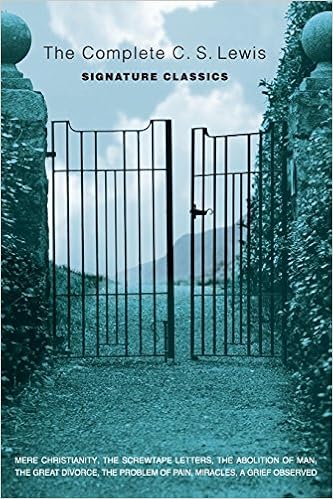
The Complete C. S. Lewis Signature Classics at Amazon
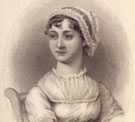
- C.S. Lewis at Amazon.co.uk
- C.S. Lewis at Amazon.com
- C.S. Lewis Biography at BBC
An interesting biography. An apologist that was not siding with any christian sect still puzzles me.
- January 30, 2019 7:14 PM
Thank You C. S. Lewis, Very Cool!
- January 28, 2019 6:22 PM
Very interesting
I read Shadowlands. I also read his book. TILL WE HAVE FACES It is considered his masterpiece.
- December 16, 2018 1:19 AM
- By Valerie Shackleton
Thanks — very interesting. A remarkable man.
- December 14, 2018 8:02 PM
Meet C.S. Lewis
C.s. lewis life & works.
Clive Staples Lewis was one of the most influential writers of the 20th Century. A brilliant and imaginative thinker, Lewis was a scholar and professor of English literature with positions at Oxford and Cambridge. Yet he became best known for his popular works of children’s fantasy and his writings and talks on the Christian faith. His BBC radio broadcasts during World War Two gained widespread acclaim in England as Lewis explored “Right and Wrong, a Clue to the Meaning of the Universe.”
Once an avowed atheist, Lewis’s own intellectual and spiritual journey led him to the God of the Bible and ultimately to Christ. While he seldom spoke of his beliefs during university lectures, His Christian faith profoundly influenced his writing. C.S. Lewis wrote over thirty books, including the Chronicles of Narnia , The Space Trilogy , Mere Christianity , Miracles , Surprised by Joy , The Screwtape Letters , and The Problem of Pain .
Lewis was the President of the Socratic Club at Oxford University and a member of the Inklings, a literary group that included friends such as J.R.R. Tolkien and Charles Williams. While he rarely traveled outside of his homeland, his influence continues to be felt around the world today.
On this site you’ll learn more about the life, works, and faith of C.S. Lewis. Explore his journey from Belfast to Narnia or follow his spiritual pilgrimage from atheist to Christian apologist. You’ll discover Lewis’s key ideas and lasting legacy and learn about the relationships that shaped his life and thoughts. You can also browse free study courses on C.S. Lewis’s books such as The Screwtape Letters , Mere Christianity , or The Weight of Glory .
Featuring photos, articles and audio/video lectures from leading C.S. Lewis scholars, we hope these resources on C.S. Lewis’s life can encourage your further study. We also invite you to go on your own journey. Consider the invitation C.S. Lewis accepted , or join a C.S. Lewis Institute Fellows program to deepen your own faith and lay a foundation for significant life-change.

Articles about C.S. Lewis
Read and listen to articles written about c.s. lewis..

The Thoughts of C.S. Lewis
Read and listen to more about the thoughts of the man c.s. lewis..
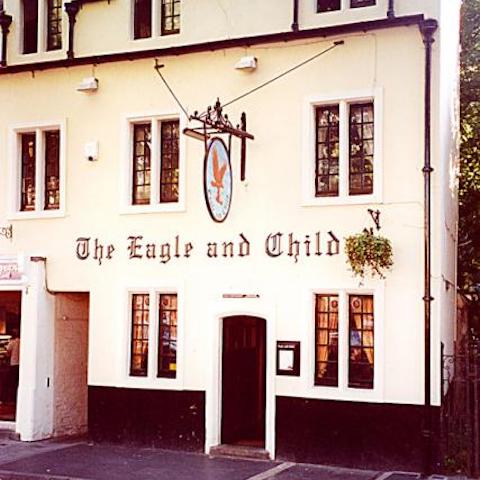
Photos about C.S. Lewis
Enjoy original photos related to the life of c.s. lewis taken by james beavers, free e-book on c.s. lewis.
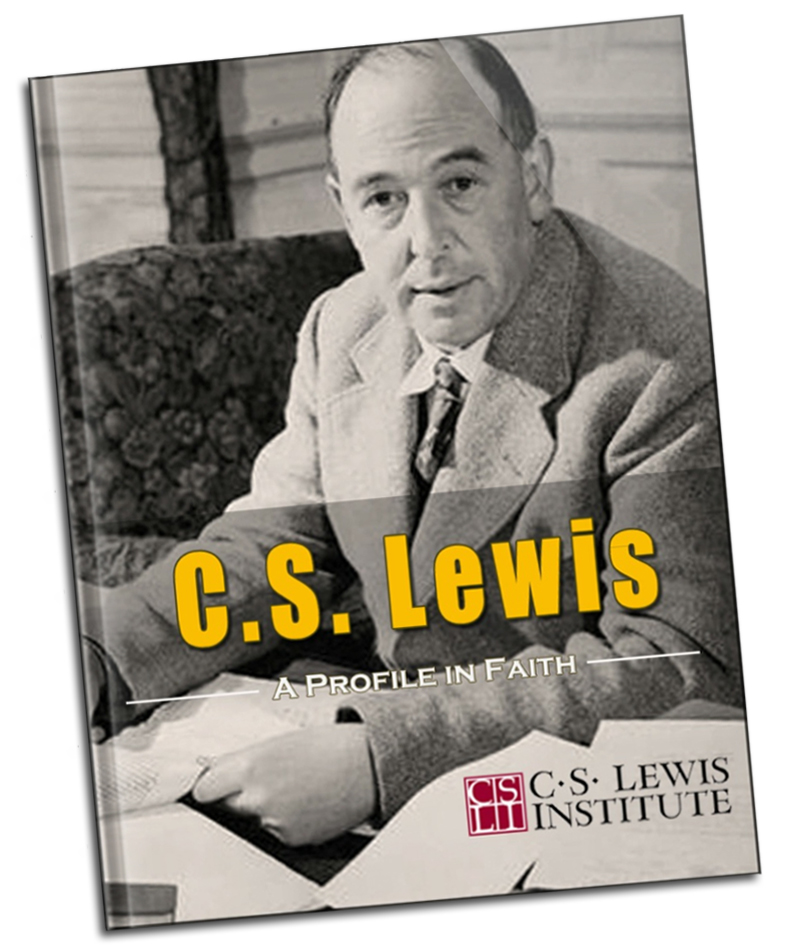
Study Courses
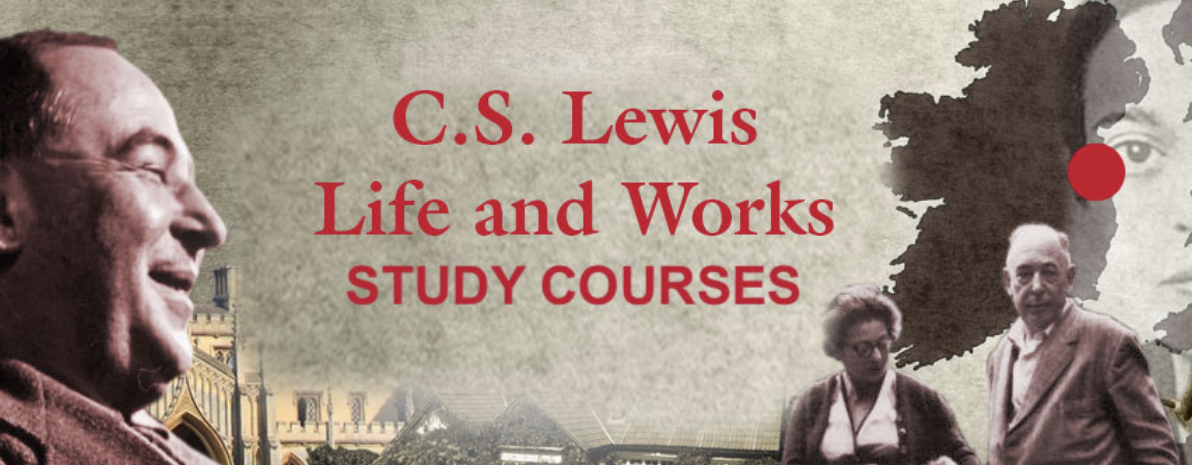
Sign up for Free Study Courses Based on the Works of C.S. Lewis
Including: the apologetics of c.s. lewis, communicating the gospel: c.s. lewis style, c.s. lewis’s case for christ and many more., latest release:, from belfast to narnia: the life and faith of c.s. lewis.

The Invitation C.S. Lewis Accepted - And One You, Too, Can Accept
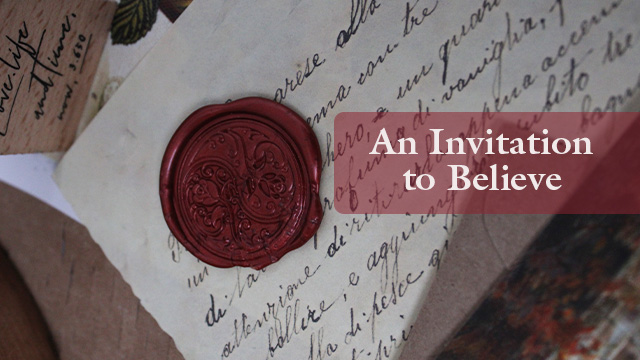
Contact Event Manager
Book your tickets.
April 21, 2024
- World Biography
C. S. Lewis Biography
Born: November 29, 1898 Belfast, Ireland Died: November 24, 1963 Oxford, England Irish writer, novelist, and essayist
The Irish novelist and essayist C. S. Lewis was best known for his essays on literature and his explanations of Christian teachings.
Early life and education
On November 29, 1898, Clive Staples Lewis was born in Belfast, Ireland. He was the son of A. J. Lewis, a lawyer, and Flora August Hamilton Lewis, a mathematician (expert in mathematics), whose father was a minister. At four years old he told his parents that he wanted to be called "Jack" Lewis, and his family and friends referred to him that way for the rest of his life. Jack's best friend as a boy was his older brother Warren. They did everything together and even created their own made-up country, Boxen, going so far as to create many individual characters and a four-hundred-year history of the country.
Lewis's mother, who had tutored him in French and Latin, died when he was ten years old. After spending a year in studies at Malvern College, a boarding school in England, he continued his education privately under a tutor named W. T. Kirkpatrick, former headmaster (principal) of Lurgan College. During World War I (1914–18), which began as a conflict between Austria-Hungary and Serbia but eventually involved much of Europe, Lewis served as a second lieutenant in the English army, interrupting his career as a scholar that he had begun in 1918 at University College, Oxford. Wounded in the war, he returned to Oxford, where he was appointed lecturer at University College in 1924. In 1925 he was appointed fellow (performing advanced study or research) and tutor at Magdalen College, England, where he gave lectures on English literature.
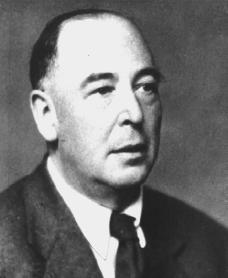
Published works
In 1926 Lewis's first publication, Dymer, appeared under the pseudonym (fake writing name) Clive Hamilton. Dymer revealed Lewis's gift for satire (a work of literature that makes fun of human vice or foolishness). The Pilgrims' Regress, an allegory (an expression of truths about human existence using symbols) published in 1933, presented an apology for Christianity. It was not until the appearance of his second allegorical work, The Allegory of Love (1936), however, that Lewis was honored with the coveted Hawthornden prize.
The Screwtape Letters (1942), for which Lewis is perhaps best known, is a satire in which the devil, here known as Screwtape, writes letters teaching his young nephew, Wormwood, how to tempt humans to sin. Lewis published seven religious allegories for children titled Chronicles of Narnia (1955). He also published several scholarly works on literature, including English Literature in the 16th Century (1954) and Experiment in Criticism (1961).
Although Lewis went on to publish several works involving religion, he had lost interest in it early in life and only later "converted" to Christianity, joining the Anglican Church. His autobiography (the story of his own life), Surprised by Joy: The Shape of My Early Life, fails to explain what happened in his childhood. His headmaster in boarding school, a minister who urged him to "think" by hitting him, may have contributed to this change.
Later years
Lewis went on to become a professor of English at Cambridge University, England, in 1954. Widely read as an adult, his knowledge of literature made him much sought after for his company and conversation. Lewis thoroughly enjoyed sitting up into the late hours in college rooms talking about literature, poetry, and religion.
In 1956, rather late in life, Lewis married Joy Davidman Gresham, the daughter of a New York Jewish couple. She was a graduate of Hunter College and had previously been married twice. When her first husband suffered a heart attack, she turned to prayer. Reading the writings of Lewis, she began attending church. Later, led by his writings to Lewis himself, she divorced her second husband, Williams Gresham, and married Lewis. She died some three years before her husband. C. S. Lewis died at his home in Headington, Oxford, England, on November 24, 1963. A major collection of his works is held by Wheaton College in Illinois.
For More Information
Adey, Lionel. C. S. Lewis: Writer, Dreamer, and Mentor. Grand Rapids, MI: William B. Eerdmans Pub., 1998.
Como, James T., ed. C. S. Lewis at the Breakfast Table and Other Reminiscences. New York: Macmillan, 1979.
Glaspey, Terry W. Not a Tame Lion: The Spiritual Legacy of C. S. Lewis. Nashville: Cumberland House, 1996.
Lewis, C. S. Surprised by Joy; the Shape of My Early Life. London: G. Bles, 1955.
Walsh, Chad. The Literary Legacy of C. S. Lewis. New York: Harcourt Brace Jovanovich, 1979.
User Contributions:
Comment about this article, ask questions, or add new information about this topic:.

IMAGES
VIDEO
COMMENTS
Here is our favorite C.S. Lewis biography … (PLUS, more biographies and companion guides to his work) Compiled by Marina Konow . Brief C.S. Lewis Biography: Though the celebrated C.S. Lewis, didn't necessarily have a long life, he managed to accomplish a great deal with the time he was given. In his 65 years on earth, Lewis went from being raised Christian to later becoming atheist; only ...
The Lion, The Witch, and The Wardrobe has been read and re-read, and will no doubt open again in the years to come. Cover Photo Credit: Pexels/Pixabay. Discover the greatest books by C.S. Lewis ...
Certain attitudes or expressions from the book, reflective of its time of writing, may seem outdated or less relatable today. While central to the story's charm, the battle between good and evil can feel predictable to readers craving unexpected twists. 9. The Last Battle — The Chronicles of Narnia #7.
T.S. Lewis: A Complete Guide to His Life & Works. by Walter Hooper (HarperOne) Owen Barfield on C.S. Lewis: by Owen Barfield, ED. G. B. Tennyson (The Barfield Press) This book offers thought ...
3. 'The Great Divorce'. Published in: 1945. Lewis wrote "The Great Divorce" in response to William Blake's "The Marriage of Heaven and Hell," which argues for the necessity of both good and evil in the world. "The Great Divorce" explores what the afterlife will be like for people who lived good lives and for those who didn't.
Amazon. " The Lion, the Witch and the Wardrobe," available at Amazon and Bookshop, from $7.64. With over 2.5 million ratings, "The Lion, the Witch and the Wardrobe" is the most popular C.S. Lewis ...
Here, I talk about 5 biographies of C.S. Lewis, each with a different way of looking at his story. The conversation includes: #1 A personal biography by student and friend, George Sayer, Jack: A Life of C.S. Lewis #2 A baseline critical biography by Alister McGrath, C.S. Lewis: Eccentric Genius, Reluctant Prophet
Lewis was a prolific author of fiction and nonfiction who wrote dozens of books over the course of his career. His faith-based arguments as seen in texts like The Great Divorce (1946) and Miracles ...
C.S. Lewis (born November 29, 1898, Belfast, Ireland [now in Northern Ireland]—died November 22, 1963, Oxford, Oxfordshire, England) was an Irish-born scholar, novelist, and author of about 40 books, many of them on Christian apologetics, including The Screwtape Letters and Mere Christianity.His works of greatest lasting fame may be The Chronicles of Narnia, a series of seven children's ...
Today is C.S. Lewis's 117 th birthday! To celebrate, here are five books that explore his life and work. 1. C.S. Lewis - A Life: Eccentric Genius, Reluctant Prophet by Alister McGrath. C.S. Lewis - A Life is a comprehensive and highly readable biography that systematically delves into each stage of Lewis's life, from his Irish childhood ...
Clive Staples Lewis FBA (29 November 1898 - 22 November 1963) was a British writer, literary scholar, and Anglican lay theologian.He held academic positions in English literature at both Magdalen College, Oxford (1925-1954), and Magdalene College, Cambridge (1954-1963). He is best known as the author of The Chronicles of Narnia, but he is also noted for his other works of fiction, such ...
McGrath's work on Lewis's theology offers the best insights in a biography that's wretched with cliches. Sam Leith. Wed 8 May 2013 05.00 EDT ... I don't know if we do need another biography of CS ...
Clive Staples "C.S." Lewis was born on November 29, 1898 in Belfast, Ireland (see chronology). He died on November 22, 1963, the same day President John F. Kennedy was assassinated. He had only one sibling, a brother, Warren, who was three years older and with whom he remained friends all his life. C.S. Lewis' earliest memories involve "endless ...
The best biographies on Lewis as well as the best books about Lewis's writing. flag. All Votes Add Books To This List. 1: Surprised by Joy: The Shape of My Early Life by. C.S. Lewis. 4.06 avg rating — 63,337 ratings. score: 995, and 11 people voted ...
From Atheism to Christianity: The Story of C.S. Lewis by Joel Heck. Call Number: BV 4935.L43 H43 2017. This book is the spiritual homecoming story of Clive Staples Lewis, a careful and thoughtful scholar who spent fifteen years journeying the long road from atheism to theism and, eventually, to Christianity. The Narnian by Alan Jacobs.
Comments. No comments have been added yet. 100 books based on 7 votes: The Screwtape Letters by C.S. Lewis, Mere Christianity by C.S. Lewis, The Chronicles of Narnia by C.S. Lewis, The Horse and H...
By Dr Oliver Tearle (Loughborough University) Although Clive Staples Lewis (1898-1963) - known as 'Jack' to his friends and family - is best-known for his seven children's fantasy novels set in the land of Narnia, C. S. Lewis wrote a number of other works - fiction and non-fiction, science fiction and literary criticism - which have become classics in their field.
Clive Staples Lewis (1898-1963) was one of the intellectual giants of the twentieth century and arguably one of the most influential writers of his day. He was a Fellow and Tutor in English Literature at Oxford University until 1954, when he was unanimously elected to the Chair of Medieval and Renaissance Literature at Cambridge University, a position he held until his retirement.
C.S. Lewis (November 29, 1898 - November 22,1963) was a British fantasy writer and scholar. Known for his imaginative fantasy world of Narnia and, later, his writings on Christianity, Lewis' life was informed by a search for higher meaning. He remains to this day one of most beloved children's authors in English.
A controversial Christian apologist. Author of a children's fantasy that has sold millions upon millions of copies. And, after his death, almost a cult figure. C. S. Lewis was an incredibly complicated man, and, as revealed in this splendid biography, a mystery to those who knew him best.
C.S. Lewis Biography. C.S. Lewis was an author, essayist and Christian apologist. He is best known for his children's classic series - The Chronicles of Narnia. Clive Staples Lewis was born on 29 November 1898 and lived until 22 November 1963. He was born in Belfast, North Ireland into a Protestant Ulster family.
Clive Staples Lewis was one of the most influential writers of the 20th Century. A brilliant and imaginative thinker, Lewis was a scholar and professor of English literature with positions at Oxford and Cambridge. Yet he became best known for his popular works of children's fantasy and his writings and talks on the Christian faith.
Published works In 1926 Lewis's first publication, Dymer, appeared under the pseudonym (fake writing name) Clive Hamilton. Dymer revealed Lewis's gift for satire (a work of literature that makes fun of human vice or foolishness). The Pilgrims' Regress, an allegory (an expression of truths about human existence using symbols) published in 1933, presented an apology for Christianity.